2024 ESG REPORT


2024 ESG REPORT

We are pleased to share our progress in turning commitment into action. Guided by our vision, Building Today to Transform Tomorrow™, we continue to deepen the integration of our commitments into every facet of our work; helping create a healthier, more sustainable future for our people, our business, and our planet.
We are focused on putting our commitments into action, grounded in our culture of active caring. We are bringing greater consistency to our practices—from tracking embodied carbon, waste, and water use at the project level to using data to guide decisions and improve outcomes. These efforts strengthen our ability to measure what matters, remain accountable, and lead with purpose.
We are advancing a more respectful and inclusive industry, committed to creating a workplace where everyone can thrive, show up authentically, and be treated with dignity and respect. Each day, we work to expand opportunity, eliminate hate and bias, and foster a culture of continuous improvement.
By working together with care and innovation, we build better projects—and a stronger future for all. At Turner, we are Building Today to Transform Tomorrow™.


Executive Vice President, Chief Financial Officer


Rosemarie Demonte Executive Vice President, Chief Human Resources Officer, Chief Human Rights Officer

Executive Vice President

At Turner, Environmental, Social, and Governance (ESG) guides how we build, how we lead, and how we show up on our jobs for people and the planet. Our strategy, Building Today to Transform Tomorrow™, is built on our three core pillars: Sustain
Our Planet, Protect & Actively Care for People, Purposefully Transform Our Industry. This framework unifies the work we’ve been doing for decades—on safety, employee growth and development, environmental responsibility, and community impact—and channels it into a unified vision for the future. It reflects our belief that real progress happens when our actions are aligned with our values.
Our second ESG report marks another important step in that journey. It offers a window into the progress we have made, the lessons we have learned, and the partnerships that help drive us forward. It also reflects the continued development of a culture grounded in respectful and inclusive practices, one that supports transparency, shared responsibility, and long-term impact. This report is more than a summary of outcomes; it is a signal of our commitment to keep evolving, to stay accountable, and to lead with purpose. We are proud of what we have achieved so far, and we remain focused on the work ahead. Because when we build today with care, integrity, and courage, we truly Transform Tomorrow.
OUR OPERATIONS OUR PROJECTS
Support a Sustainable and Resilient Built Environment
Work with our business partners and clients to influence decisions about the sourcing, resiliency, and sustainability of building materials and systems.
Reduce our Operational Environmental Footprint
Protect the environment by reducing energy, water and waste, while committing to mitigating impact on biodiversity and ecosystems.
TRANSFORM OUR INDUSTRY
OUR EMPLOYEES OUR COMMUNITIES
Develop a Healthy, Thriving, Best-in-Class Workforce
Support the continuous development of people in a healthy, safe, diverse, and inclusive environment.
OUR BUSINESS PARTNERS
Create a Safe and Healthy Work Environment Grow Purposeful Community Impact
Promote the physical and mental wellbeing of people and build a more sustainable supply chain.
Grow healthy and sustainable community partnerships and strengthen diverse and local businesses.
OUR OPERATIONS OUR PROJECTS
Drive Sustainable Market Transformation
Accountable and Transparent Business Practices
Introduce innovative products and services that make us better builders, improve the industry, and positively impact the world.
Uphold the highest standards of business conduct and be transparent and clear with our commitments.
For over 120 years Turner has transformed skylines, strengthened communities, and driven industry change. Through our culture of caring and staying true to our core values of commitment, integrity and teamwork we make meaningful change in our communities and within our industry.
We continue to make tremendous strides with increasing career opportunities and inclusion at Turner and on our jobsites, of improving safety and wellbeing, and reducing our impact on the environment.
The challenges that we’re facing globally inspire us to do more. More for the environment, for society, and for the partners we work with every day. Our history is full of key "firsts", which set the foundation for the launch and implementation of our ESG Strategy.
2004 First Company-wide Safety Stand Down (50,000 workers)
2014 Turner hosts first Annual Innovation summit
1968
Start of Community and Citizenship Department
Founded in 1902
1969 Launch of Turner School of Construction Management
1997 Founding member of U.S. Green Building Council
2022 First published Equity Audit Report
2018 Established Turner Innovation Challenge
2018 First Community and Citizenship Impact Report
2024
Inaugural ESG Report published
2023 ESG Strategy Launch
2019 Announced our 2030 Jobsite Reduction Commitment & Resilience Program



We reduce the environmental impact of the buildings we construct and the operations involved in building them. Through advanced solutions for building decarbonization, detailed tracking, and innovative approaches to jobsite operations, we are putting our sustainability commitments into action. We build on our legacy of green building expertise while continually embracing new technologies and methods to deliver more sustainable outcomes.
OUR PROJECTS
Support A Sustainable and Resilient Built Environment
OUR OPERATIONS
Reduce our Operational Environmental Footprint
Our commitment to a sustainable and resilient built environment begins well before the shovels are in the ground. In preconstruction, we partner with clients and design partners to integrate strategies for resilience planning, energy efficient design, waste avoidance, recycling, the use of circular materials, calculating and reducing embodied carbon, incorporating health and human rights considerations in material evaluations and championing decarbonization.

More than 20 years ago, Turner launched its first efforts to increase the sustainability and resiliency of the built environment. Today we continue to introduce innovative approaches and services that make Turner better builders, foster a more sustainable supply chain, and positively impact the planet. Turner’s sustainability team enables the company to effectively serve clients across multiple industries who seek higher levels of environmental performance and resiliency in their facilities.
Turner leads in green building, with a portfolio of projects certified under LEED (Leadership in Energy and Environmental Design) and LEED credentialed professionals. The company is advancing industry decarbonization by reducing embodied carbon, electrifying equipment, and tracking energy and water use across all projects.
That leadership is visible on jobsites, where Turner is scaling low-carbon concrete, mass timber, and alternative fuels all in pursuit of Net-Zero Emissions by 2040. These efforts reflect more than technical progress; they embody Turner’s commitment to building today to transform tomorrow.
In recognition of this commitment, Turner received the 2024 U.S. Green Building Council (USGBC) Leadership Award for Organizational Excellence. This prestigious award honors outstanding organizations whose vision, leadership, and commitment have significantly advanced the green building industry and inspired progress across the built environment.
Turner was specifically recognized for its holistic and long-term approach to sustainability, which spans project delivery, workforce development, and supply chain transformation. It affirms Turner’s role as a catalyst for change and a champion of resilient, low-carbon, and sustainable building practices.
From influencing how buildings are designed to rethinking how they are built, Turner is proud to help create better outcomes for people, the planet, and future generations.














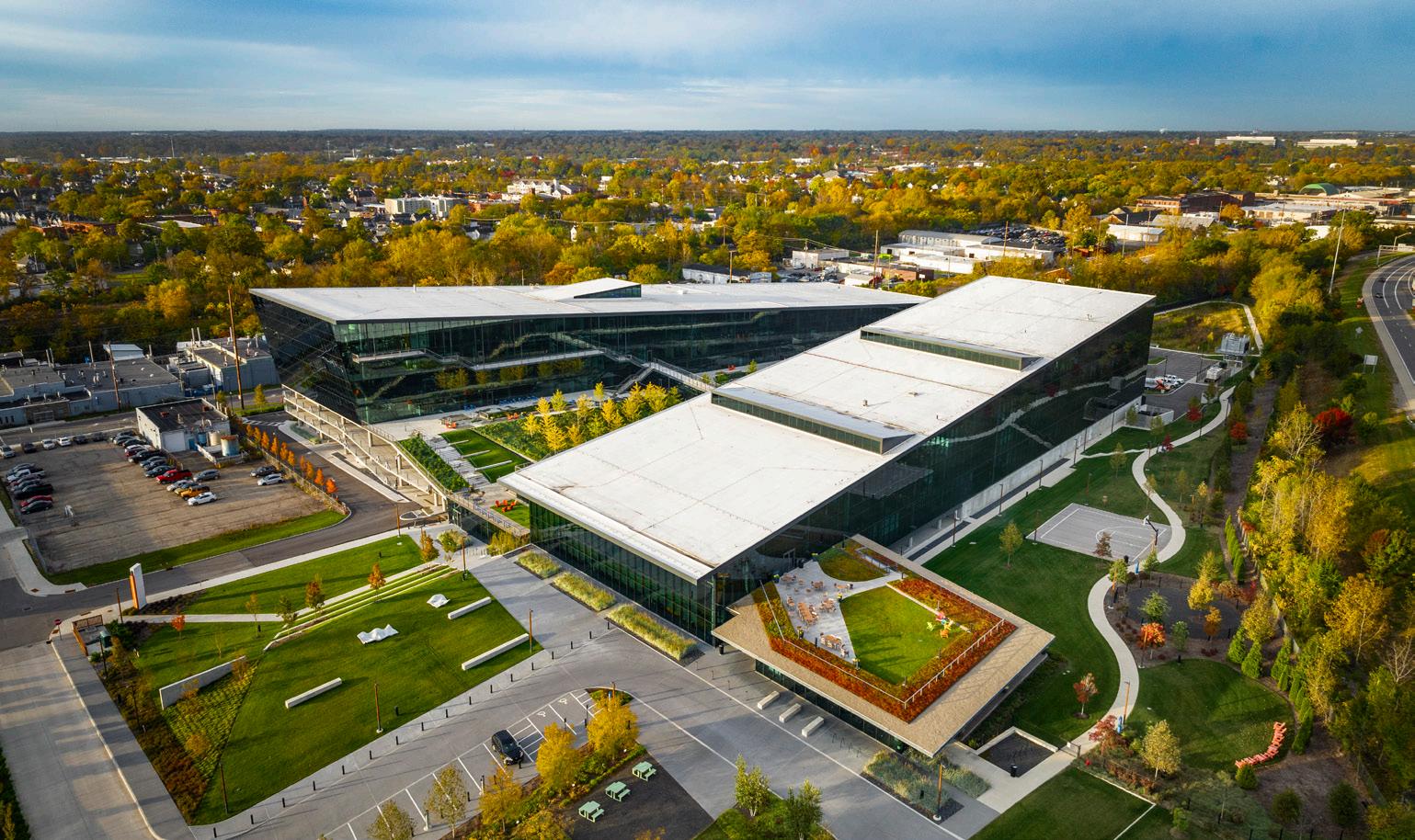
The CoverMyMeds Campus in Columbus, Ohio, is a leading example of sustainable design and wellness integration. Achieving certification in 2024, this four story office building complex was the first new construction office building and the first building in Ohio to achieve LEED Platinum and WELL Platinum certifications. Designed by Perkins & Will and built by Turner, the 420,000 square-foot space features smart energy systems, water-saving fixtures that conserve over 600,000 gallons annually, toxin-free materials, and wellness amenities like fitness spaces and outdoor access. More than a workplace, it sets a new standard for sustainable, people-centered development.


Merdeka 118 in Kuala Lumpur has earned LEED Platinum certification under Core & Shell v2009, making it Malaysia’s first mega-tall tower to do so. Standing at 678.9 meters, it’s the tallest building in Southeast Asia and second tallest globally.
Developed by PNB Merdeka
Ventures and built with Turner leading construction and project management, the 118-story tower includes PNB’s new headquarters, 83 floors of office space, and a Park Hyatt hotel atop 16 floors. The site also features a mall, residences, and transit access. The project also targets GreenRE, GBI, and WELL certifications, aiming to become Malaysia’s first triple-platinum mega-tall tower and a global model for sustainable high-rise design.
The Denver International Airport (DEN) Concourse Expansion Program earned LEED Platinum certification in 2024, recognizing its commitment to sustainable aviation infrastructure. Delivered with Turner leading construction, the program added over 590,000 sq. ft. across
Concourses A and B and the A East Ground Load facility. Key features included 16 new gates, international processing capabilities, extensive apron paving, and a relocated de-icing facility. Energy efficiency, water conservation, and enhanced occupant experience were central to the design, positioning DEN as a national model for sustainable airport expansion.
BlueRock Tenant Interiors, Cambridge, MA - LEED ID+C: Commercial Interiors Gold
CoverMyMeds Campus, Columbus, OH - LEED BD+C Platinum and WELL Platinum
Des Moines Univesity, West Des Moines, IALEED BD+C Silver
Inglewood Basketball & Entertainment Center, Inglewood, CA - LEED BD+C Platinum
Confidential Data Center, Des Moines, IALEED BD+C Gold
555 Tower, Bellevue, WA - LEED BD+C Gold
Eliot-Hine Middle School, Washington, DC - LEED BD+C Gold
The Club SFO, San Francisco, CA - LEED ID+C Gold
MetroHealth New Hospital, Cleveland, OHLEED BD+C Certified
United Airlines DEN A & B West Club, Denver, COLEED BD+C Silver
Bellaire High School, Houston, TX - LEED BD+C Certified
Wexford One uCity Square, Philadelphia, PA - LEED BD+C Gold
Volpe Center, Cambridge, MA - LEED BD+C Platinum
Confidential Data Center, Des Moines, IALEED BD+C Gold
Hilton Downtown Columbus, Columbus, OH - LEED BD+C Gold
325 Main St, Cambridge, MA - LEED BD+C Gold
Denver International Airport Concourse Expansion, Denver, COLEED BD+C Platinum
Providence Park Stadium Expansion, Portland, OR - LEED BD+C
Turner is committed to advancing mass timber construction. As a technical partner in the multi-year “Mass Timber in Three Regions” study, Turner contributes construction expertise to a collaborative effort aimed at accelerating the adoption of mass timber in Minneapolis, Denver, and Atlanta.
The project, led by Olifant, brought together a multidisciplinary team of architects, engineers, foresters, and policy advocates including the Boston Society for Architecture, AIA chapters in Georgia, Colorado, and Minnesota, SCB, and LeMessurier, to accelerate the use of mass timber in urban construction, reduce embodied carbon in construction, and catalyze investment in domestic mass timber manufacturing.
Turner engaged specialists from across the company in sustainability, our Turner Engineering Group (TEG), and preconstruction who collectively brought deep experience in project planning, materials evaluation, structural design, and life-cycle analysis. Our team assessed how mass timber could perform in real world conditions by analyzing cost, procurement, carbon impact, and schedule implications in three distinct building typologies. Their ability to merge design analysis with construction knowledge ensured that the research considered not only technical feasibility but also practical pathways to implementation.
By bringing our expertise to the table, Turner’s professionals helped identify strategies that could be scaled across regions and project types, ensuring that the benefits of mass timber extend beyond pilot projects to broader industry adoption. Their contributions highlighted the essential role of builders in shaping sustainable solutions and demonstrated how our expertise bridges the gap between research concepts and on-the-ground application.
By engaging directly in research and industry partnerships, Turner continues to support sustainable building innovation and the broader shift toward climate-smart construction practices.



When Turner partnered with Arlington County to build the Arlington Regional Transit Operations Facility in Virginia, the project aimed to achieve LEED Silver certification, fulfilling the County’s baseline sustainability requirement. The project team saw the potential to do more. With our deep expertise in green building and a drive to push the project further, the Turner team worked closely with the owner and design team to maximize the project’s environmental performance. The result: by working together, we position the project to achieve LEED Platinum certification.
We achieve this kind of transformation through strategic thinking, technical knowledge, and an ability to see opportunities others might overlook. From the early construction phase, Turner embedded sustainability into every conversation, holding regular meetings to track LEED status and explore every possible avenue to strengthen the project’s performance. We asked how we could do better, instead of what was what was required.
Turner demonstrated that the site qualified for additional LEED credits, helped refine water efficiency strategies, and collaborated with the owner and design team to enhance energy performance. We also took a thoughtful approach to material selection, ensuring choices aligned with LEED requirements while maximizing environmental benefits. By continuously evaluating the project through a sustainability lens, we unlocked opportunities that might have otherwise been missed.
We achieve these outcomes because we build the right team from the start. Experienced leaders, project managers, and estimators collaborated closely to challenge assumptions, refine strategies, and ensure every decision maximized sustainability potential. Their combined expertise transformed what could have been a standard green project into a benchmark for environmental excellence.

Turner is helping its clients with their energy transition, moving decarbonization initiatives from conceptual studies into active construction projects. With more than 30 million square feet across 100 buildings undergoing decarbonization studies or completed work, Turner supports clients in moving from planning to implementation. Leading this effort, Colin Schless and his team help campuses, existing buildings, and new projects achieve zero-carbon solutions.
“We work to find low-cost, high-impact solutions,” says Schless. “We offer clients engineering expertise and financing options through best-in-class preconstruction services, enhancing Turner’s strengths in estimating, logistics, scheduling, and construction.” The team acts as the “handshake” between engineering and construction, helping bring zero-carbon goals to life.
Schless’s team is developing centralized resources to support Turner’s offices in navigating decarbonization, following a model used in other specialized markets like healthcare and data centers.
Turner’s strategy focuses on four key areas for success. First, research and development help clients explore emerging technologies. Second, engineering and estimating support ensures technical and financial feasibility, with best practices shared across the U.S. regions. Third, logistics and scheduling support electrification efforts in complex, mission-critical sectors like healthcare, backed by Turner’s
We work to find low-cost, high-impact solutions... We offer clients engineering guidance and financing options through best-in-class preconstruction services, enhancing Turner’s strengths in estimating, logistics, scheduling, and construction.
— Colin Schless Director of Decarbonization
direct procurement subsidiary, SourceBlue. Finally, the Decarbonization Pricing Index, developed with NYSERDA (New York State Energy Research and Development Authority), offers transparent cost estimates for major systems and equipment. Just as Turner has become a leader in hospital construction, our approach aims to become a goto partner for decarbonization across our clients’ portfolios.
Recognizing the importance of knowledge-sharing, Turner has launched monthly estimator training sessions focused on topics like high-ventilation buildings, campus-wide decarbonization, and geothermal system integration.
Turner’s decarbonization efforts support sustainability, and are also demonstrative of our leadership. By investing in engineering expertise, supply chain intelligence, and project execution strategies, Turner is ensuring that its clients and the industry can transition to a carbon-free future.
Turner has launched the Decarbonization
Scan to access the Decarbonization Pricing Index
Pricing Index, a first-of-its-kind tool developed with NYSERDA to help clients better understand the costs of decarbonization. The index provides transparent pricing for key equipment and systems, enabling smarter investment decisions and accelerating carbon reduction efforts across the industry.
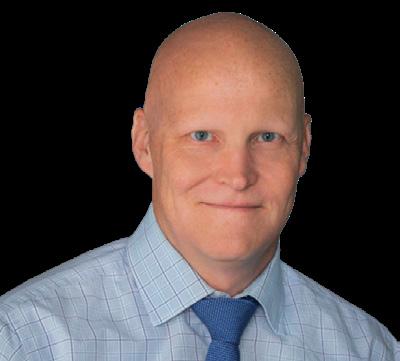
Decarbonization is quickly becoming central to construction and MEP (Mechanical, Electrical, and Plumbing) engineering, especially in cities with aggressive sustainability goals. With over 20 years of experience, Drew Lowry works as a Senior MEP Preconstruction Engineer helping lead Turners efforts to meet these challenges with insight and innovation working on projects.
Q: What trends are shaping MEP engineering in cities like Boston?
A: Boston’s development landscape has provided us with the opportunity to work on cutting-edge projects, from MIT’s nano facility to quantum physics labs at Harvard. These experiences, combined with the city’s progressive stance on decarbonization, reinforce the belief that sustainable engineering is the future. The push for decarbonization and electrification in new construction in Boston has become a defining trend. It’s reshaping how we design, plan, and build from the ground up.
Q: How has Turner approached this shift?
A: Our team has been engaged from day one of this initiative. Actively participating with engineers and project teams has allowed us to implement decarbonization strategies at scale and in real time.
Q: What role does training play in meeting sustainability goals?
A: Every city has different goals—some targeting net-zero emissions by 2030, others by 2050. Understanding these timelines helps us plan and execute projects accordingly.
Q: Why is this work personally meaningful for you?
A: It’s doing the right thing when no one’s looking. That mindset comes from my time in the Coast Guard and carries through in how we approach decarbonization.
Q: How does Turner aim to stand out in the industry?
A: We always want to be the team that clients trust because we know our stuff. That means staying ahead of code changes, training our people, and delivering innovative, sustainable solutions.
Q: What’s the long-term impact of adopting these technologies now?
A: Adopting these technologies now positions buildings to reduce energy use and operating costs from day one, with long-term gains in compliance readiness, market value, and resilience. The investment typically pays off through lower utility bills and improved performance.


We recognize the power of our operations to drive meaningful environmental impact. Turner brings a long history of leadership in tracking and reducing jobsite fuel, electricity, water use, and waste. Today, we’re scaling that impact by piloting reduction strategies, advancing responsible material choices, and expanding efforts to conserve water and protect biodiversity across diverse project environments.

We report our emissions because measurement is essential to implementing meaningful climate action. Our current reporting includes Scope 1 emissions from Turner’s fleet, equipment, jobsite fuel use, and leased spaces, as well as Scope 2 emissions from purchased electricity used in our jobsite operations and offices.
By measuring these emissions consistently, we are building a foundation for accountability, and transparency. While our approach continues to evolve, we are committed to improving data quality and advancing industry understanding of both operational and embodied carbon.
rented by Turner (including self perform)
SITE HEATING/CONDITIONING
Electric temperature and humidity controls owned or rented by Turner
JOBSITE OFFICES
Electricity used in jobsite offices
LEASED SPACES
Electricity used in BU main offices and warehouses
MATERIALS
Emissions from the extraction, production and manufacturing of materials (e.g. concrete)
SUBCONTRACTORS
Subcontractor equipment and operations on the jobsite
DELIVERIES
Transportation of materials to the jobsite
CONSTRUCTION & DEMOLITION (C&D) WASTE
Processing of C&D waste, whether recycled, reused or disposed
BUSINESS TRAVEL Air, rail and vehicle travel
COMMUTING
Employee commuting to jobsites and offices
BUILDING USE
Operation of the building or space over its lifecycle
END OF LIFE
Processing of waste associated with the future demo or deconstruction of the building
INVESTMENTS
Turner’s share of JV’s when we are not the Managing Partner
We are reducing our carbon footprint through fleet electrification and renewable diesel adoption; two immediate, scalable strategies to cut Scope 1 emissions. In 2024, we made significant progress on both fronts by overcoming supply chain barriers and accelerating adoption across our operations and partner network.
Electric and hybrid vehicles now make up 15% of our fleet. We remain on track to transition our fleet to more efficient and electric vehicles, in line with current supply chain trends. We’re also supporting partners by expanding access to EV (electric vehicle) infrastructure on project sites.
At the same time, we’ve scaled our use of renewable diesel, a drop-in fuel that delivers fossil fuel emissions reductions. Internal usage rose to over 60,000 gallons in 2024, and including our trade partners lead to an increase in adoption year-over-year by over 500%. We’ve implemented renewable diesel across more than a dozen projects, supported by onsite fueling infrastructure to simplify transition.
Together, these efforts are delivering meaningful emissions reductions now, while laying the groundwork for a decarbonized future. These pilots are real-world applications that show the construction industry is already reducing emissions without compromising performance.

We are strategically identifying and piloting solutions that reduce emissions, improve efficiency, and drive meaningful progress toward a decarbonized future. By deploying cutting-edge electric equipment, integrating smart building technologies, and enacting forward-thinking jobsite policies, we are taking bold steps to reduce our environmental impact while maintaining high-performance standards of our projects.
We deployed the Bobcat T7X Electric Track Skid Steer on one of our project sites marking a critical step in our efforts to reduce reliance on fossil-fuel-powered construction equipment. The T7X is the first fully electric track loader of its kind, eliminating hydraulic components in favor of an advanced electric drive system. We’re using this machine to create a cleaner, quieter, and more efficient jobsite which comes with the opportunity for zero operational emissions, drastically reduced noise levels, and no fuel consumption.
While the T7X has many benefits, our early testing showed some limitations, particularly during winter snow removal. The machine struggled in those conditions, and battery performance varied significantly depending on application and temperature. This experience reinforced an important point; electric equipment must be deployed with
careful consideration of context and use case. Understanding these factors helps us scale electric solutions effectively rather than applying them universally.
Temporary heating is one of the largest sources of jobsite emissions, typically powered by diesel, propane, or natural gas systems. At the California State University, Chico College of Behavioral and Social Sciences project, we addressed this challenge by deploying WEDGE smart sensors through United Rentals to optimize heating operations. These jobsite thermostats allowed us to moderate diesel heater use based on actual demand instead of running them continuously.
Six temperature and humidity sensors were installed to monitor conditions in real time. We cut heater runtime
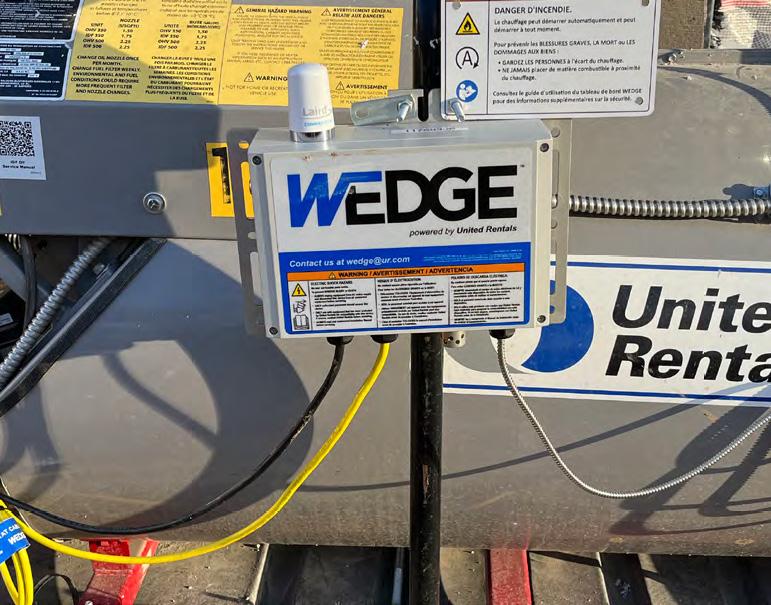
Above: WEDGE Smart Sensor installed for real-time monitoring & performance tracking.
by 80% and stabilized indoor temperatures while drastically cutting energy use and emissions. Over the course of the season, based on this study the project could save over 9,00 gallons of diesel, and potentially avoided nearly 100 metric tons of carbon emissions.
As Jobsite Carbon Program Manager Abby Roberts, PE shared, “When a simple tool can cut emissions, save money, and improve comfort, the decision to implement becomes clear.”
When a simple tool can cut emissions, save money, and improve comfort, the decision to implement becomes clear.
—
Abby Roberts, PE Jobsite Carbon Program Manager
We’ve implemented a company-wide standard to shift from diesel-only light towers, electronic message boards, and security cameras across our projects. This applies to every region. What was once a project-level decision is now an expectation for all trade partners, reinforcing our commitment to lower-emission operations across the board.
We spent a lot of time interviewing rental companies, researching the performance, and running cost and availability studies. There are a lot of hybrid, fully-electric, or solar options on the market for these items, and it is a low-hanging fruit on our journey to jobsite decarbonization.
- Emi LaFountain Sustainability Manager

Emi LaFountain, Sustainability Manager, who leads the initiative, highlighted the importance of this shift: “We spent a lot of time interviewing rental companies, researching the performance, and running cost and availability studies. There are a lot of hybrid, fully-electric, or solar options on the market for these items, and it is a low-hanging fruit on our journey to jobsite decarbonization.”
With hybrid and electric models reducing fuel use by up to 90 percent, the transition aligns with our decarbonization strategy and can lower operating costs over the course of a rental period.
Through targeted deployments of electric equipment, smart sensor data, and jobsite fuel policies, we are taking early steps toward implementing our sustainability strategy. These project specific efforts, offer promising evidence that emissions reductions and performance standards can align in practice.


Reducing Scope 3 emissions requires more than just promising technologies. It demands deep collaboration, continuous testing, and operational leadership. At Turner, our Self-Perform Operations (SPO) are at the forefront of implementing sustainable concrete strategies. From pioneering low-carbon mix designs to tracking and reusing formwork across job sites, our SPO teams are translating ambition into action.
With SPO teams directly placing and managing concrete work on projects across the country, we are in a unique position to test low-carbon materials under real jobsite conditions, collect performance data, and build confidence in sustainable solutions. Our crews are working to set low-carbon trends by doing the hard work of implementation. In 2024, Turner facilitated eight pilot installations through our Low Carbon Materials Committee, many of which would not have been possible without the coordination and technical expertise of our SPO teams.

One of the clearest examples comes from Boston’s One Milestone project, where our team created the opportunity for the first-ever field validation pour of Sublime Cement: an electrified, fossil-fuel-free alternative to traditional Portland cement. The team carefully monitors set times, finish quality, and performance against ASTM standards, validating not only the material’s viability but also the workforce readiness needed to scale it.
Similarly, at San Francisco International Airport, SPO crews placed zeroPortland-cement concrete from C-Crete in temporary grade beams and stair footings, achieving carbon savings of over 95 percent and offering key insight into field performance and constructability.
At the same Boston project, the team also took an innovative approach to traditional mixes, replacing 60 percent of cement in the mat foundation with slag and fly ash, reducing embodied carbon by 66 percent. In the structural slabs, a 25 percent replacement delivered a 33 percent reduction, and across the project, these strategies nearly doubled the initial carbon reduction goal. While at a Midwest data center, we took things further by piloting Glass Fiber Reinforced Polymer (GFRP) rebar, a lightweight, noncorrosive alternative to steel that offers reduced transportation emissions, extended lifespan, and lower embodied carbon due to its less energyintensive production process.
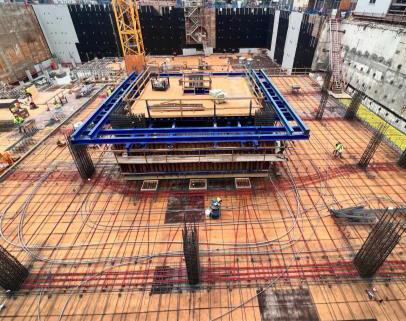
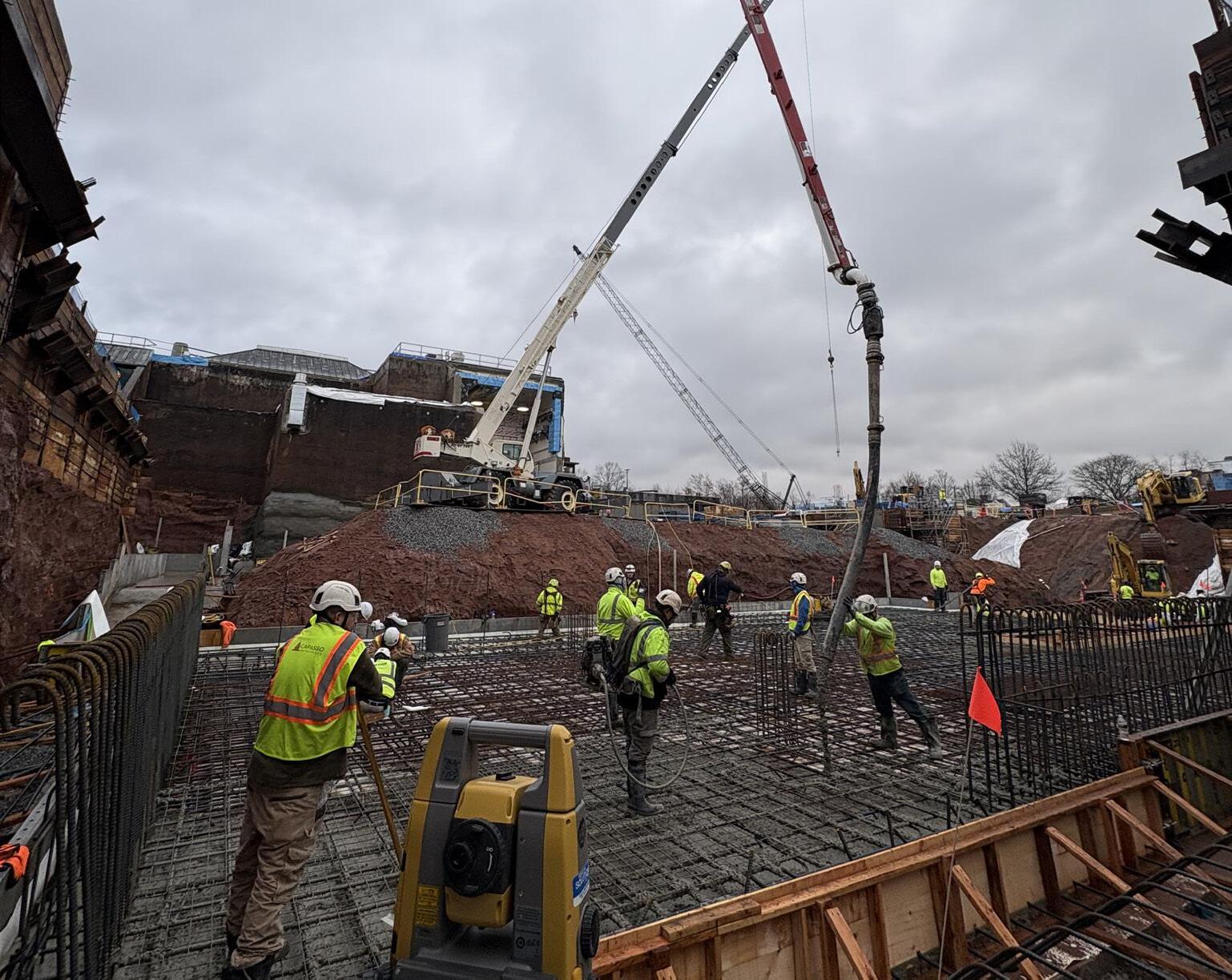

In addition to implementing new materials, Turner’s SPO teams are also finding carbon savings in how we use traditional construction components. In Portland, we tracked the reuse of formwork across two major projects, quantifying the impact of circular practices already in place. By optimizing sequencing plans and switching from medium-density to high-density overlay plywood, we avoided more than one million square feet of new material, resulting in 65 metric tonnes of CO₂e avoided. These are not hypothetical numbers. They are the result of detailed planning, coordination, and a commitment to tracking carbon savings just as rigorously as cost and schedule.
Our team at Yale University also found new ways to push sustainable concrete forward by incorporating Pozzotive, a post-consumer recycled material made from crushed glass, into the concrete mix. The SPO team managed the trial placements with careful attention to workability and consistency, adjusting admixtures to account for longer set times and monitoring slumps, temperatures, and strength performance to ensure success. The effort paid off with a 21 percent reduction in embodied carbon and valuable lessons learned about using recycled content in structural applications.
As Patrick Coughlin, SPO Manager, explains, “The landscape is changing all the time. What seemed experimental six months ago is now a viable solution. Our role is to stay engaged, test, and bring those technologies to real projects to see what works.” That engagement starts with Turner’s SPO teams, who are building smarter every day by piloting emerging materials, optimizing standard practices, and proving that sustainability does not have to come at the expense of quality or schedule. It just takes commitment and follow-through on the jobsite.
Our work is far from over. As we continue to explore low-carbon materials and circular strategies, our self-perform operations will remain a key driver of Turner’s embodied carbon reduction efforts, turning bold goals into tangible results, one pour at a time.
In 2024, we doubled the number of projects in our Embodied Carbon Benchmark Report, advancing our strategy to reduce embodied carbon at scale. The report analyzes five key materials (concrete, steel, asphalt, glass, and wood) revealing a decrease in carbon across the materials on Turner projects, driven by product specific environmental product declations (EPDs) and increased use of lower-carbon alternatives.
Using our GreenBoard platform, teams can now access realtime carbon and cost data, enabling more informed, balanced decisions. Integration with the EC3 (Embodied Carbon in Construction Calculator) tool strengthens alignment between preconstruction and procurement processes and our carbon goals. This year, we focused on standardizing tracking and refining our approach to support full-scale adoption. Embodied carbon data is becoming a core tool in driving innovation and sustainable construction across our portfolio.



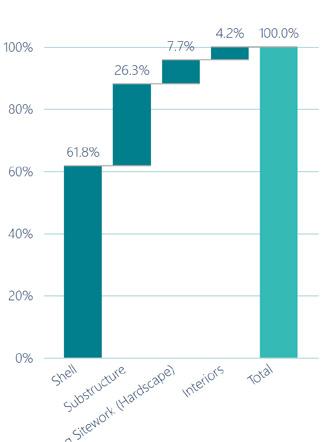
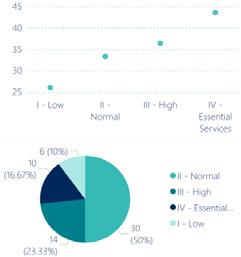


What’s






exciting is that after publishing these reports year after year, we’re starting to see incremental improvements across our entire portfolio. The numbers may be small for now, but they’re definitely moving in the right direction.
- Rowan Parris Embodied Carbon Program Manager

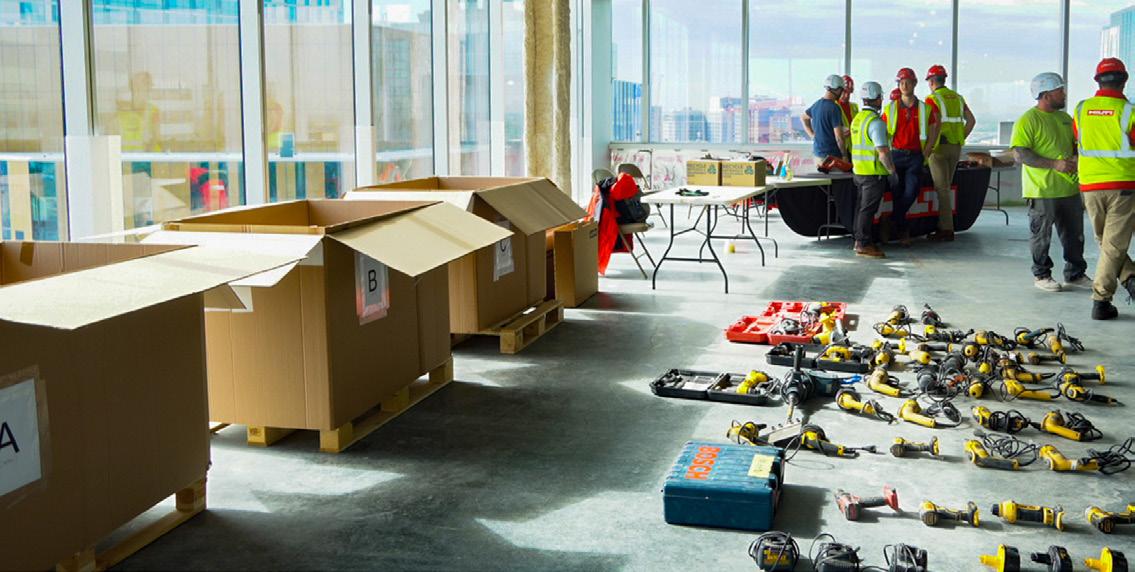
During Earth Month 2024, we partnered with Hilti, a global leader in construction tools and solutions, to implement a Tool Take-Back Program across multiple project sites, focusing on circularity and responsible tool disposal. The initiative diverted old tools from landfills while educating trade workers on sustainable practices and proper disposal methods.
The program collected 600 pounds of tools from eight projects across North America, including Boston,
Philadelphia, Kansas City, and Vancouver. These efforts were supported by Hilti, which facilitated the logistics by providing containers, packaging, scheduling, and shipping to ensure a seamless, efficient, and scalable process for all participating sites.
The initiative also highlighted the importance of sustainability at the project level by engaging the trade partners who are essential in executing these efforts, in addition to reducing waste sent to landfill. Our partnership with Hilti provides a replicable model for future efforts and reinforces the importance of working together to make responsible waste management a standard practice across all our projects.
Hilti’s expertise and willingness to collaborate with us made this initiative possible, highlighting how partnerships can lead to meaningful change on our projects.
— Nelson Russom Waste & Circularity Program Manager
Highlight
2,200 TONS REIMAGINED THE POWER OF RESOURCE REUSE
Our demobilization effort at a Midwest data center campus marked the close of more than a decade of continuous work and $2 billion in project value. Rather than viewing this phase as a routine operational wrap-up, our team saw it as a strategic opportunity to redistribute valuable materials to projects across the region. Items like crane mats, jersey barriers, aluminum light poles, and office equipment were carefully assessed, prepared, and transported for reuse—extending their lifecycle and reducing the need for new purchases. In total, more than 2,200 tons of materials were relocated, helping to avoid unnecessary manufacturing impacts.
The initiative resulted in over $1.2 million in avoided costs for receiving projects and prevented 586 metric tons of carbon emissions, even after accounting for transportation. As Nelson Russom put it, “We evaluated the materials on hand, the costs to ship, and the embodied carbon savings compared to buying new.” This thoughtful, regionally coordinated effort demonstrated how demobilization, when approached holistically, can become a powerful lever for environmental stewardship and cost efficiency—advancing both our sustainability goals and our long-term project strategy.
At Oakland International Airport (OAK), the project team saw an opportunity to integrate circularity into a phased ceiling replacement project. Although recycling the existing ceilings was not a requirement from the client or design team, the project team identified the acoustic tiles as a prime candidate for material recovery, aligning with the airport’s goal of maximizing environmental stewardship.

It’s changed my way of thinking about recycling and reuse. I will look at existing materials differently, thinking about what we can repurpose and/or recycle.
- Homero Morales Project Engineer

In a full-circle moment, some of our team members who performed the deconstruction effort were the same individuals who installed the original ceiling tiles in 2006—a true example of circularity in action.
We teamed up with our trade partners to leverage the Armstrong Ceilings Recycling Program, ensuring all 68,301 square feet of removed tiles were returned to the manufacturer for reuse. By embedding recycling requirements into the bid and contract language, we ensured tiles were palletized daily for tracked, manufacturer-approved off-haul.
To further reduce environmental impact, we used rail transportation, keeping carbon emissions negligible compared to the embodied carbon savings from recycling the tile. The material traveled over 2,800 miles,
avoiding landfill disposal and supporting a circular supply chain—all at no additional cost to the project team or client.
This initiative diverts 47,810 lbs (23.9 tons) of material from landfills and reintroduced it into the product supply chain. By reducing the need for virgin materials in future tile production, we then prevented embodied carbon emissions reducing the projects overall impact.
Water is a finite resource, and reducing its consumption is a key focus of our commitment to sustainability. Across our operations, we are finding innovative ways to minimize potable water use, enhance water efficiency, and reuse drilling slurry where feasible. During the installation of a large-scale geothermal system at a university campus in New Jersey, we implement a semi-closedloop water and mud recycling process to significantly reduce potable water consumption during rotary drilling operations. Traditional excavation methods for geothermal wells, particularly mud rotary methods, require large volumes of water to stabilize soil and aid in material removal. To address the high water use, we utilized a system that combined mud augers with dedicated mudrecycling units (Mud Puppies), enabling repeated reuse of drilling slurry throughout the process.
Across two active drilling areas, the process enabled the handling and reuse of approximately 185 million gallons of water. While
not fully closed-loop due to unavoidable water loss through evaporation and disposal, the system significantly reduced potable water needs during drilling.
In addition to conserving water, the system reduced the environmental footprint of the drilling operation by limiting the need for frequent water sourcing and disposal trips. Each rig was equipped with its own unit, contributing to emissions rather than reducing them. Nonetheless, the approach supported operational sustainability goals by lowering potable water demand and reducing municipal supply stress.
This effort highlights how strategic planning and the use of adaptable technology such as water and mud recycling can meaningfully reduce environmental impact in complex infrastructure projects.
At Turner, we’re always looking for smarter ways to conserve resources and reduce environmental impact. On one of our data center projects, the team implemented a targeted water management strategy that substantially reduced potable water use associated with dust suppression, which is especially water-intensive during the summer months.
The project originally relied on an elevated holding tank filled with potable water to supply trucks for dust control. After identifying a more efficient option, the team repurposed water from the site’s retention pond. A pump system was installed to transfer water from the pond to the holding tank, eliminating the need for potable water while maintaining effective dust suppression.
This adjustment delivered clear benefits. The project saved over 300,000 gallons of potable water each month, easing pressure on local water supplies. It also reduced water and sewer costs by about $9,200 per month. With a quick payback period of just eight months, the initiative proved both environmentally and financially sound.
This example shows how thoughtful planning and simple system changes can lead to real sustainability gains while supporting project and client goals.
At Turner, we approach sustainability with a commitment to both protecting our natural environment and ensuring the resilience of our projects and communities. Our initiatives in biodiversity and climate adaptation reflect a deep understanding of how interconnected these efforts are and how they enhance the places where we live and build. From cultivating gardens that promote local ecosystems to implementing strategies that prepare for climate challenges, our work embodies the balance between environmental stewardship and resilience.

At the San Diego Airport, our Monarch Butterfly Garden began as a small idea and became a vibrant habitat supporting over 300 monarchs in 2024. Led by Project Manager Ingrid Hoch, the effort brought together native plantings, a shared mission of wellness, and a hands-on way to connect the team to local ecology.
In Kansas City, our Self-Perform Operations team created a produce garden that grew tomatoes, peppers, and herbs while supporting pollinators, birds, and soil health. The garden strengthened team bonds and inspired plans to expand in the coming year.
From monarchs to vegetables, these projects show how simple, site-driven biodiversity efforts can enhance well-being, strengthen teams, and restore local ecosystems.
As climate risks like flooding, drought, and wildfires grow more frequent, Turner helps project teams and clients plan ahead. For new projects, we offer a structured approach to assess climate vulnerabilities, explore site-specific risks, and identify mitigation strategies that build long-term resilience.
We also provide tools to help teams prepare for and respond to severe weather, with resources that support readiness on jobsites and at home. In water-stressed regions, our Water Management Action Plan helps track use, reduce waste, and implement reuse systems like closed-loop tool wash sinks.
Supporting these efforts is Turner’s Resiliency Network, a company-wide group of experts who share insights, promote innovative solutions, and guide teams on climate adaptation. Through monthly deep dives in 2024, the network equipped project teams with practical strategies to strengthen outcomes and protect communities.




Turner fosters an inclusive, respectful culture where people thrive. Guided by our Active Caring approach, we support employee growth, strengthen partnerships, and engage with communities. We focus on well-being, belonging, and responsible practices across our operations—creating lasting impact through meaningful relationships, shared responsibility, and a deep commitment to people and planet.
Our Employees Develop a Healthy, Thriving, Best-in-Class Workforce
Our Business Partners
Create a Safe and Healthy Work Environment
Our Communities Grow Purposeful Community Impact
Our people are at the heart of everything we do. We are committed to providing the support, resources, and benefits that enable employees to bring their authentic selves to work, feel a true sense of belonging, and thrive in their careers.

At Turner, Active Caring is more than a philosophy it’s our daily commitment. It means showing up for one another, investing in people’s potential, and creating a workplace where everyone can thrive.
Turner’s culture of care drives its approach to workforce development, mentorship, and leadership. Through partnerships with organizations like Nontraditional Employment for Women (NEW), ACE Mentor, and YouthConstruct help us open doors for the next generation of builders. Since 2017, we have helped over 41,000 students explore careers in construction and continues expanding access through preapprenticeships, hands-on learning, and mentorship.
like the Women Superintendent Network and programs such as the Turner School of Construction Management provide ongoing support, professional connection, and clear pathways to leadership.
Turner’s Active Caring culture shapes how teams are built and supported—through flexible work, inclusive practices, and a strong commitment to jobsite safety.
Turner has joined the Million Women in Construction Community Pledge, committing to help create one million meaningful opportunities for women across the industry over the next decade. Internally, networks
The Inclusive and Respectful Workplace Playbook outlines steps to ensure all employees feel respected, equipped, and empowered. Active Caring is building a stronger, more inclusive future for construction— where everyone has a place and every career has the opportunity to thrive.
We are sustaining the right environment where people can be at their best, be authentic, and are treated with respect and dignity.
- Peter Davoren Chairman & CEO


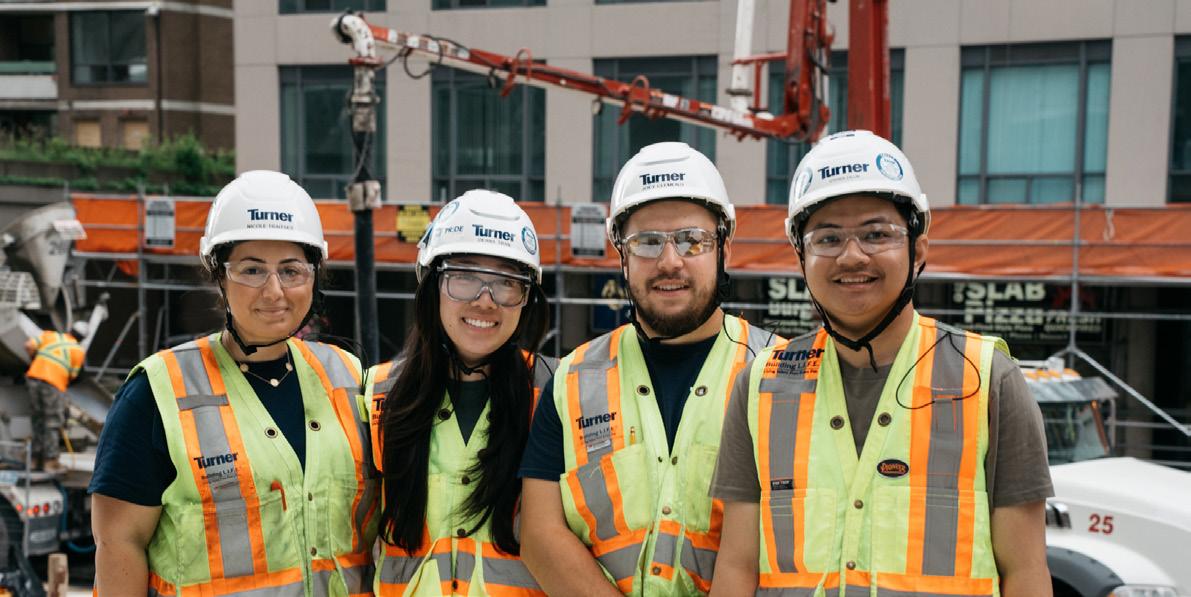
Employee Resource Groups (ERGs) foster inclusion, professional growth, and meaningful connections. At Turner, ERGs play a key role in creating an environment where employees can bring their full selves to work.
Many ERGs start as grassroots initiatives focused on education, like ally trainings, lunch-and-learns, and conversations at project sites. Over time, they become spaces for advocacy, visibility, and leadership. Topics expand to include mental health, self-identification, and broader understandings of allyship that reach across demographics.
These groups are also powerful tools for professional development. Employees gain confidence and experience by organizing events, participating in company-wide conversations, and helping shape



recruiting and retention efforts. Leadership sees this value too, offering support and trust that empowers people to take initiative and make an impact.
Turner’s ERGs create space for connection, support, and learning across a wide range of identities and experiences. ERGs are open to all, and their strength comes from broad participation, including both those who identify with a group and those who join as allies.
These groups show that Turner’s commitment to building an inclusive workplace is part of how we work every day.




For Jamie States, a quality control engineer in Turner’s Denver office, joining the PRIDE ERG began as a way to support LGBTQ+ representation. In their second year with the company, Jamie stepped into leading the local group, ready to make a difference. “I’ll certainly try,” they recall.
That moment became a turning point. What began with ally trainings expanded into efforts focused on mental health, and increasing visibility across job sites. Jamie’s leadership helped shape a more inclusive culture and encouraged others to speak up and get involved.
Along the way, Jamie experienced the personal impact of that culture firsthand. After a partner sent flowers to the job trailer, coworkers responded with warmth and curiosity. That was when Jamie realized Turner was a place where they could be themselves. Now a member of the PRIDE Board, Jamie continues to lead with heart and create space for others to feel seen, supported, and empowered to thrive.

When I was an undergrad, I didn’t even know companies like Turner were recruiting LGBTQ+ youth. That’s why I wanted to focus on our recruitment and retention effort — because representation at leadership levels matters.
Turner marks a milestone in leadership development with the graduation of the first cohort of the Inclusive Leadership Academy, a 10-month program designed to equip emerging leaders with the tools to lead with confidence, clarity, and connection.
A second cohort of 32 participants launched in 2024, reflecting Turner’s ongoing investment in leadership excellence.
Created in partnership with CoachDiversity Institute, a Black woman-owned executive coaching firm, the program blends personalized coaching, interactive learning, and collaboration with managers and development partners. It is about growing leaders who strengthen teams and deliver results.
Participants describe the development experience as transformational. Jarren Harvey shared, “It has matured me. I am having more fruitful discussions because I am focused on intention and listening. It reinforced the value of building strong teams with psychological safety and openness.”
The Inclusive Leadership Academy helps leaders build trust, listen deeply, and create space where people feel valued. It strengthens individual capability and team performance across the company.
As Turner continues to grow, the Inclusive Leadership Academy serves as a cornerstone of our leadership development strategy. It reflects our ongoing belief that leadership excellence and inclusion go hand in hand and that investing in our people today strengthens our company for tomorrow.


Programs like this are one of the most powerful tools we have to grow the next generation of inclusive leaders. It’s inspiring to see the personal and professional transformation participants experience; how they grow in confidence, clarity, and purpose. That growth strengthens our entire organization.
- Lisa Moving, Vice President
of Diversity, Equity & Inclusion
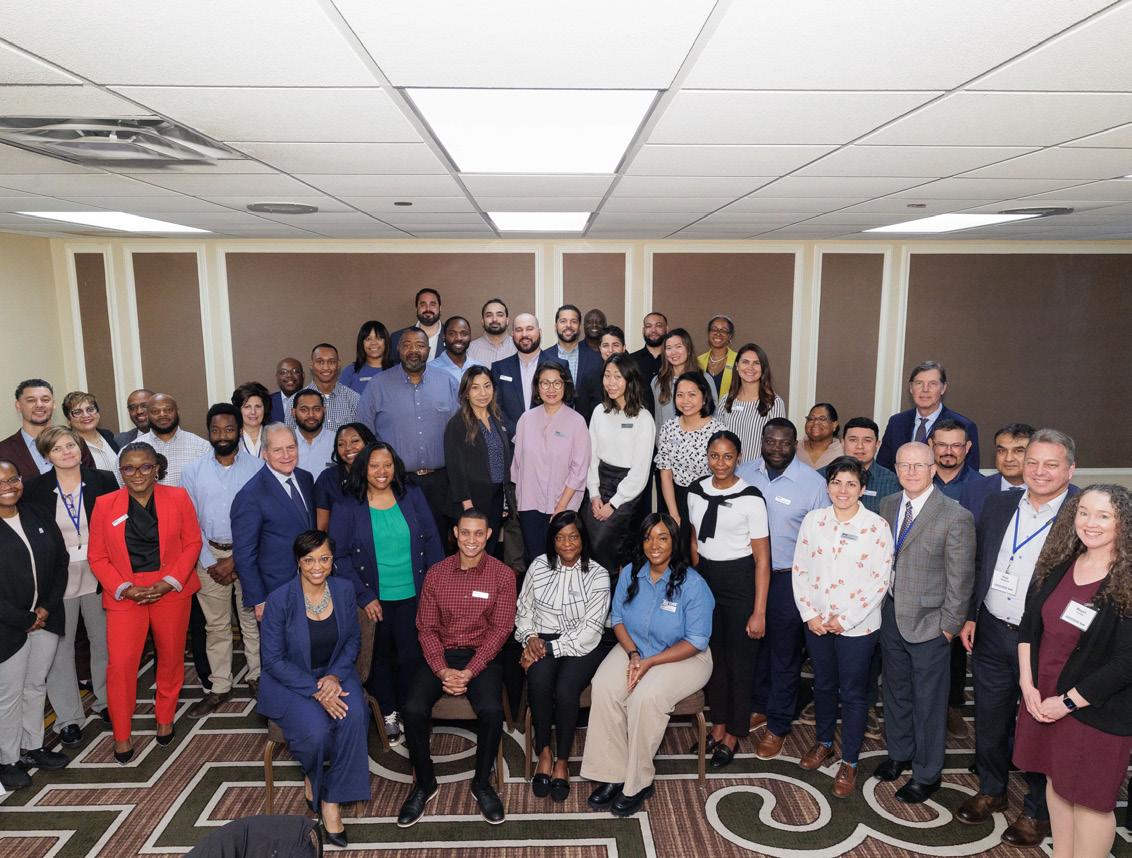


At Turner, we are committed to creating a future built on opportunity, leadership development, and the strength of a connected workforce. Our One Turner philosophy exemplifies how we bring this vision to life—by staying united as one company, regardless of where we work or what role we play.
Our continued growth is fueled by the dedication, talent, and collaboration of our people. Across our projects in sectors such as healthcare, education, infrastructure, and data centers, Turner employees embrace new challenges that expand their skills and enhance our shared impact. This dynamic environment supports meaningful career advancement and positions our team to deliver consistently for clients and communities.
As we invest in tomorrow’s leaders, we are proud to partner with institutions that promote access to professional development. Our growing relationship with Grambling State University (GSU) is a notable example. In recognition of our ongoing collaboration, Turner received the Community Changemaker Award from GSU. The award celebrates organizations that foster meaningful career pathways and invest in the next generation of professionals.
Over the past two years, Turner has awarded more than $150,000 in scholarships to GSU students and increased the number of Grambling alumni on our team from one to five, across over five local offices. This progress reflects the leadership of GSU alum Chris Compton, Jr., and the active engagement of General Managers Andy Tandon and Nick Barker.
These partnerships, combined with our cross-market collaboration and emphasis on skill-building, help ensure we are developing a resilient and capable workforce. By staying connected, sharing insights, and creating opportunities throughout the company, we reinforce our values and advance our mission—how we hire, how we work, and how we grow.

Turner’s New Hire Conferences welcome recent college graduates and experinece hires with a three day experience designed to connect, inform, and inspire. The program introduces new hires to Turner’s culture, operations, and values, with sessions led by experts in safety, lean, innovation, sustainability, and more.
The experience goes beyond the classroom with team-building activities, social hours, bowling nights, and scavenger hunts. Panel discussions featuring employees and leaders of all levels to offer relatable insights and career guidance.
Held multiple times each year across the country, the conference is an investment in our people. New hires leave with a vision for their career path at Turner along with a sense of belonging and connection to the Turner community.
10
NUMBER OF NEW HIRE CONFERENCES

978
NUMBER OF ATTENDEES
19,071 LEARNING HOURS







At Turner, we believe that a thriving workforce is one that never stops learning. Training and development are central to our culture and this year’s Community & Citizenship and Employee Resource Group (ERG) Workshop in Atlanta, Georgia, embodied that commitment. Over two and a half days, 135 professionals from across the U.S., Canada, and international locations came together to build skills, share knowledge, and grow as leaders.
Designed as a hub for professional growth, the workshop focused on empowering ERG leads and Community & Citizenship team members with the tools, strategies and connections they needed to drive impact. Sessions emphasized leadership development, strategic problem-solving, and actionable ways to support our efforts especially in areas like workforce development, supplier outreach, and inclusion.
“The conference provided opportunities for connection, sharing of best practices, tools, and resources to equip attendees in their impactful work,” said Fuquan Collins, Vice President & Chief Diversity Officer.
Interactive sessions covered topics such as strategic problem-solving, compliance, workforce development, and creating best-in-class ERGs. Leadership insights were shared during a panel discussion featuring senior executives, reinforcing Turner’s commitment to developing and supporting employees at every level.
By investing in learning and leadership development through initiatives like this workshop, Turner continues to build a workplace where every employee is empowered to drive meaningful change.



The conference provided opportunities for connection, sharing of best practices, tools, and resources to equip attendees in their impactful work.
- Fuquan Collins, Vice President & Chief Diversity Officer

At Turner, we believe that a thriving workforce is built on continuous learning and personal growth. That’s why we launched Take 5 to Thrive—a five minute micro-learning series designed to help employees enhance key skills like time management, effective communication, self-care, and team building.
These short, impactful lessons serve as a reminder that small investments in learning can make a big difference in our ability to support our teams and deliver for our clients. By taking just five minutes to grow, we strengthen our workforce, elevate our performance, and reinforce our commitment to excellence in everything we do—one habit, one insight, and one team at a time.
In 2024, Turner made a focused investment in the leadership development of its self-perform trade workforce. Foreperson are more than supervisors; they are frontline problem-solvers, cultural stewards, and a vital talent pipeline for future superintendents.

Crew leaders are the first line of responsibility for trades and our greatest potential source of recruiting for on-site leadership.
- Savannah Foley, Human Resources Manager, SPO
To support their growth, Turner rolled out the Lead the Way series, a structured, and hands-on leadership program delivered in three progressive levels over 18 months. Built in-house and refined with input from field experts, it fosters leadership skills through peer collaboration and practical application. More than 500 foremen completed Lead the Way 1.0. in 2024, with the program expanding through a train-the-trainer model that builds internal capacity for continued growth.
To further accelerate talent, Turner introduced Shaping Future Leaders, a selective small-cohort course for high-performing foremen. Together, these efforts are translating leadership development into lasting, jobsite-driven impact.
Turner is continuously reviewing and improving its benefits offerings to meet the evolving needs of our employees and their families. This reflects our commitment to support a thriving, best-in-class workforce.
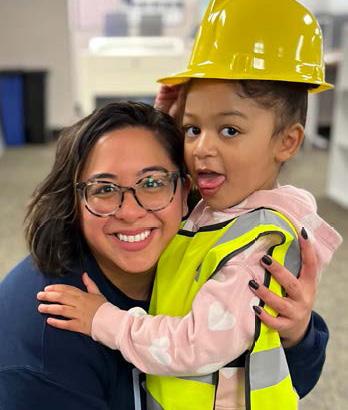


This year, Turner expanded its Paid Family Leave (PFL) policy, increasing the amount of time available to employees for bonding with a new child or caring for a family member with a serious health condition. The updated policy reinforces our commitment to supporting employees during important life moments.
This enhancement reflects our belief that employees should have the time and flexibility to care for their loved ones and prioritize their well-being. By continuing to strengthen our benefits, Turner ensures our people have the support they need to thrive both at work and at home.
A thriving workforce depends on more than professional growth—it requires a culture of inclusion and care. Turner is committed to supporting the employee’s whole self, including mental and emotional well-being.
Our Employee Resource Groups (ERGs) bring our values to life by creating safe, supportive spaces where people feel seen and included. The Abilities Network, one of Turner’s ERGs, focuses on increasing visibility and inclusion for people with both seen and unseen disabilities. Its mission is to ensure that everyone at Turner feels safe, supported, and empowered to bring their full selves to work.
As part of this commitment, the Abilities Network hosted both Lunch & Learns and Panel Discussions designed to spotlight personal stories and deepen understanding across our teams. One such event featured a powerful webinar on bipolar disorder, where three Turner employees—two living with bipolar and
one with a family connection—candidly shared their experiences. Their honest dialogue helped educate colleagues on how bipolar disorder can manifest in the workplace, and how we can all contribute to a culture of empathy and support.
Initiatives like these reflect Turner’s ongoing commitment to building a more inclusive and compassionate workplace. By supporting mental health, championing those with different abilities and embracing neurodiversity, we continue to strengthen our teams and create an environment where everyone can thrive.

People are Turner’s greatest asset, making it a great place to work. Every person contributes to a workplace culture that celebrates unique contributions and honors the common values that unite us. Turner is honored to have received these external acknowledgments in 2024.

We prioritize the safety and well-being of everyone on our jobsites by building care into how we plan and operate each day. Through thoughtful coordination with trade partners and teams, we ensure individuals have the tools, training, and support they need to work safely and return home without harm. And because true care goes beyond physical safety, we also provide wellness resources that support every person on site’s mental, emotional, and overall health. We are sustaining the right environment where the safety of the worker is more important than the productivity of the work, where people can be at their best, be authentic, and treated with dignity and respect, and where we are working to eliminate hate and bias from our industry every day.
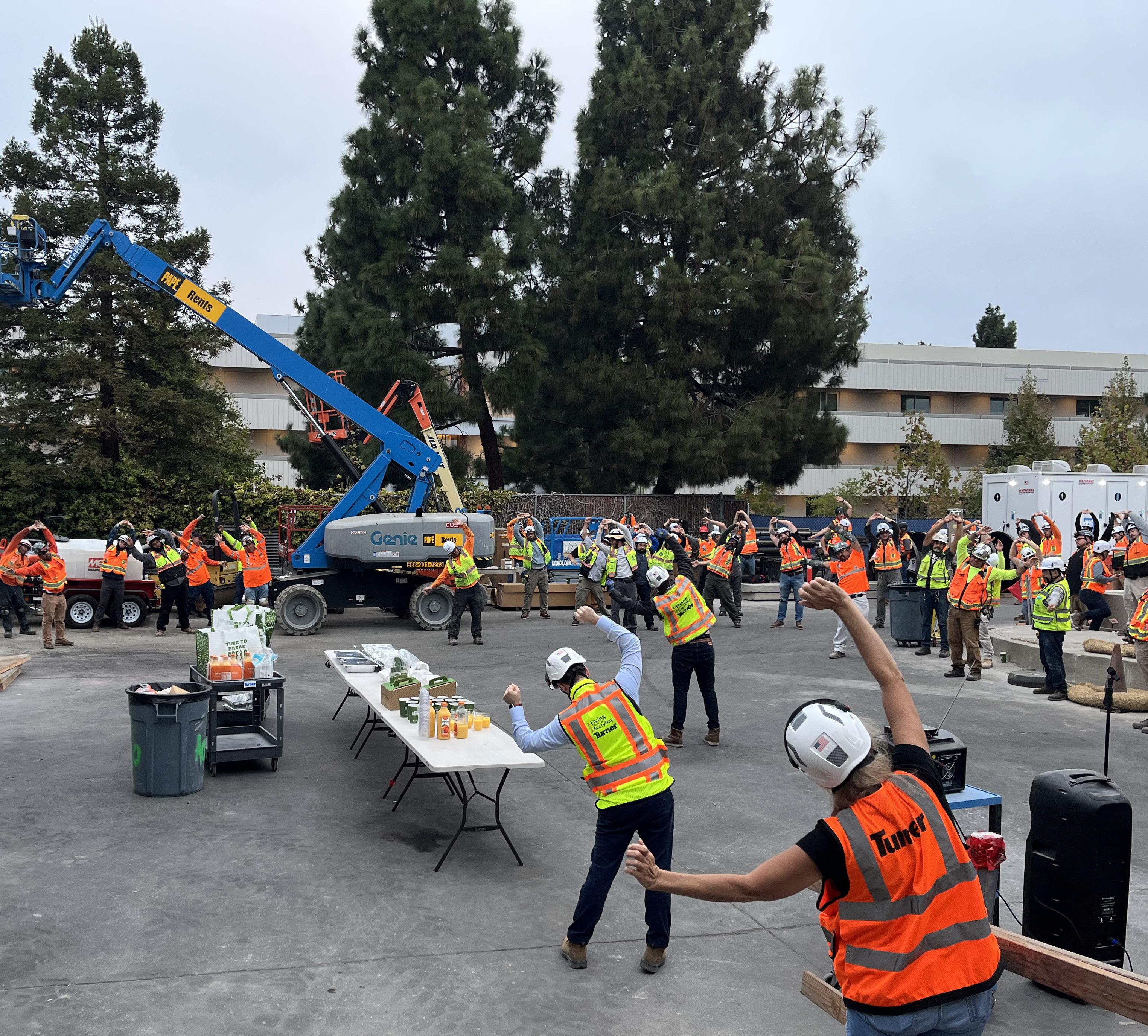
Turner has taken an important step to reinforce its commitment to worker well-being by promoting eight experienced leaders to the new role of Operations Safety Executive. Reporting to Chief Environmental, Health and Safety Officer Steve Spaulding, these individuals will support safety leadership across the company and help guide consistent, people-focused practices on project sites.
Robert Baird, Dean Bitter, Ron Covo, Karl Kinsella, Doug LaPlante, Andrew Leone, Laura Prendergast, and Ian Smith bring a wide range of operational experience, from managing complex builds to leading teams on sites with thousands of workers. While they’ve long fostered safe, respectful environments where people can do their best work, this new role gives them the platform to extend that impact company-wide, helping shape Turner’s safety culture at every level.
“This team reflects the deep operational knowledge and care for people that define our approach to safety,” said Spaulding. “They’ll help strengthen our culture and ensure we continue to lead with both expertise and empathy.”








0.32 TRIR
TURNER ONLY
TURNER ONLY
0.03 LTIR
0.64 EMR
At Turner, safety is foundational to how we work. “Our House” reflects our shared responsibility to create an environment where everyone feels included, supported, and empowered to act.
We must sustain the right environment where the safety of the worker is more important than the productivity of the work, where people can be at their best and authentic and treated with dignity and respect, and where we are working to eliminate hate and bias from our industry every day. From pre-task planning and daily huddles to real-time data tracking and leadership engagement, safety is part of our everyday practice.
TURNER AND ALL TRADE PARTNERS
0.78 TRIR
Wellness is also a key part of our culture. Each project and office implements a Health and Wellness program that supports physical, mental, emotional, and spiritual well-being. These programs promote healthy habits and encourage a balanced, resilient workforce.
TURNER AND ALL TRADE PARTNERS
0.07 LTIR
Through our Active Caring model, we lead by example, speak up for one another, and build a culture of trust and accountability. Our commitments are made real through daily actions that keep our people safe and well.
TRIR: Total Recordable Incident Rate
EMR: Experience Modification Rating
LTIR: Lost Time Incident Rate

Turner’s 2024 Artificial Intelligence (AI) Innovation Challenge accelerated our efforts to proactively enhance job-site safety using artificial intelligence. Following a structured innovation framework, Turner teams collaborated closely with leading experts from AI Academy, Design Sprint Academy, and OpenAI. The initiative culminated in a dynamic three-day AI Hackathon in New York City, where multidisciplinary teams rapidly developed AI-powered prototypes for real-time safety training, instant field compliance assessments, and predictive analytics to reduce project risks. Through strategic application of AI, Turner continues to embed innovation into our operations, empowering teams, and fostering safer, sustainable workplaces.
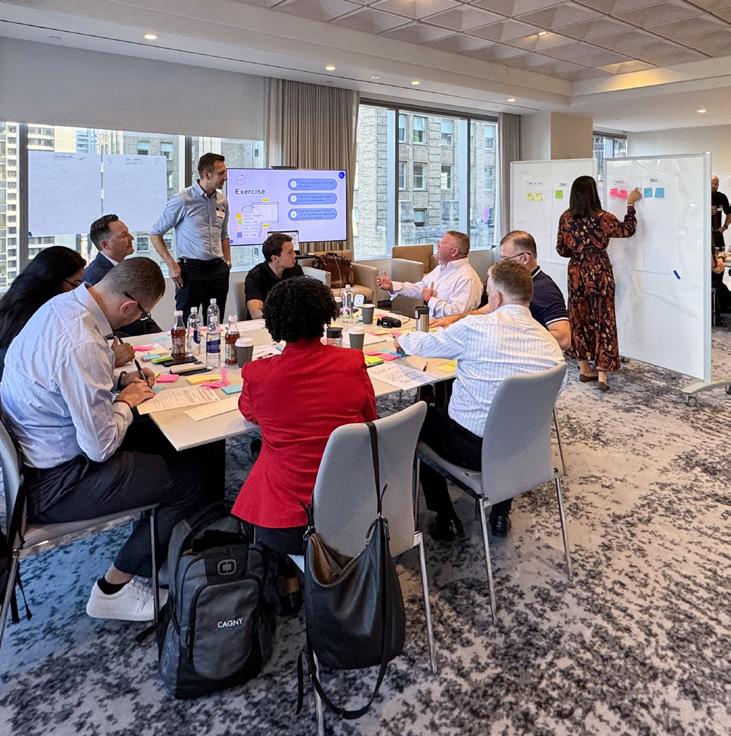


In May 2024, we united more than 100,000 people in a companywide Safety Stand-Down to launch Construction Safety Week—sending a powerful message that every voice matters when it comes to safety. Under the theme “Value Every Voice,” the initiative strengthened our culture of speaking up, listening, and taking action on safety concerns. By also joining OSHA’s national stand-down to prevent fall hazards, we amplified our impact across the industry and reinforced our belief that safety is everyone’s responsibility.

At Turner, we believe that showing up for one another is one of the most important things we can do. That’s why we are taking intentional, compassionate action to help prevent self-harm and support mental well-being across all our jobsites.
The Preventing Self-Harm Playbook is a new resource created to help teams act early and confidently when someone may be at risk. Instead of waiting for a crisis, the Preventing Self-Harm Playbook focuses on prevention by offering clear steps to recognize warning signs, how to approach with care, and respond appropriately.
Now a dedicated part of our Crisis Management Plan, the playbook was developed through cross-department collaboration. It outlines how to handle potential self-harm situations and how to engage real-time support. The goal is to ensure no one faces a difficult moment alone.
To support our efforts, we have introduced and updated tools that keep this guidance easily accessible. The Suicide Prevention Toolbox Talk helps teams open conversations and raise awareness. Jobsite posters and cards have been refreshed to make it easier for teams to find help quickly when it’s needed. Additionally, confidential help is always available through Turner’s Employee Assistance Program.
Just as we train for physical safety, we are building readiness around mental health. Teams are receiving expanded training to speak up and step in with confidence. We are creating space for meaningful conversations as prevention starts with connection. Our focus is on keeping these tools useful, visible, and grounded in compassion. Support is always available, and no one has to face this alone.
As Construction Inclusion Week (CIW) marked its fourth year, the tone across the industry shifted. It became more about embedding lasting change. What began as a coalition of contractors committing to workforce development and diversity has become a platform for sustained culture shift.
This year’s theme, workforce development, took center stage. With persistent labor shortages and demographic shifts reshaping the trades, contractors and unions ramped up investments in pipelines: apprenticeships, pre-apprenticeship pathways, mentorship networks, and partnerships with schools and community organizations. These are a part of a broader push to ensure construction jobs are more accessible and reflective of the respect workers deserve.
CIW 2024 also catalyzed pointed conversations around inclusion. Not just who gets in the door, but what happens once they are inside. Roundtables and sitelevel discussions grappled with the harder questions: How do we foster respect on every crew? How do we shift jobsite culture to reflect our values?

More firms are moving from participation to ownership. CIW is no longer just a once-a-year set of events. Increasingly, companies are using it as a launchpad to change how they work, incorporating inclusion into project planning, safety protocols, and everyday operations. The tone has matured, it is about challenging an industry to build differently, not just physically but culturally.
As CIW looks toward its fifth year, its impact is expanding. The message to workers, present and future, is unequivocal: you have a place in this industry, and it is one worth shaping. CIW is not the finish line. It is the foundation.





As the largest purchaser of construction materials and equipment in the United States, Turner is uniquely positioned to anticipate and address supply chain disruptions. Our dedicated Procurement team works closely with Preconstruction and SourceBlue managers to identify trends, assess risks, and respond proactively.

In today’s volatile global environment shaped by climate events and geopolitical uncertainty, resilience demands foresight and agility. Turner has responded by strengthening its internal systems and external partnerships. We’ve built a robust database of supplier relationships and developed the Turner Supply Chain Report, a centralized web-based platform that tracks real-time insights from across our network. Visibility is essential. Our Contract Items List (CIL) standardizes material tracking across projects. Integrated with an internal dashboard, the CIL enables project teams to monitor critical materials, understand sourcing details, and anticipate potential delays.
Collaboration underpins our strategy. Procurement teams gather lead times and manufacturing data during preconstruction,
which project engineers maintain throughout the build. This ensures teams know where materials are made, how they’ll be shipped, and when they’ll arrive, providing the transparency needed to act fast when disruptions occur.
Turner’s scale and reach provide a strategic advantage. As part of the ACS Group, we have access to an expansive supplier network and long-standing manufacturer relationships. This influence enables us to secure hardto-source materials, something smaller contractors often struggle to do.
Our response to supply chain shocks highlights this strength. When natural disasters strike we have the ability to quickly secure alternate suppliers and work directly with manufacturers to identify viable substitutes due to our relationships.
With the scale of our operations and the strength of our procurement systems, we don’t just react to disruptions—we anticipate them, adapt in real time, and ensure our clients continue building without pause.
- Mike Bruskin, Vice President, Chief Procurement Officer
These outcomes reflect not just strong relationships but the ability to act decisively under pressure.
Beyond logistics, Turner takes a values-based approach to procurement. We use Prewave, a platform that screens suppliers for human rights violations and social compliance risks. This layer of due diligence supports responsible sourcing while minimizing risk exposure.
In a complex and evolving landscape, supply chain resilience is not a one-time effort, it’s an ongoing capability. By leveraging digital tools, cultivating supplier relationships, and applying insights in real time, Turner continues to deliver for clients with consistency and confidence.

SourceBlue, a subsidiary of Turner, is expanding its service offerings globally to support clients beyond Turner projects and into new international markets.
Turner’s SourceBlue and Self Perform Operations (SPO) teams are evaluating top products to better align procurement decisions with environmental, social, and business goals. SPO focused on core materials like concrete, drywall, and steel, while SourceBlue analyzed system-level products such as chillers, generators, and switchgears. Using the Mindful Materials framework, both teams assessed sourcing risks, environmental impacts, material health, and viable alternatives.
This cross-functional effort supports consistent, sustainable decision making across different project types and strengthens Turner’s overall broader supply chain strategy. By embedding evaluation criteria into procurement processes, Turner is translating ESG commitments into measurable action and building a scalable, proactive approach to ethical, resilient sourcing one that supports both internal priorities and evolving client expectations.
Established in 2001, SourceBlue specializes in supply chain management for construction, helping clients secure materials, equipment, and finished products with cost and schedule certainty. With a team of over 300 experts and a global vendor network, SourceBlue delivers innovative procurement solutions across diverse sectors. In 2024, the company expects to manage over $1 billion in materials and products. This expansion marking a major milestone in SourceBlue’s mission to streamline construction supply chains worldwide.


Purvesh Shah joined SourceBlue as Vice President of Global Sourcing, bringing fresh perspective and momentum to the company’s sustainable procurement strategy. With a focus on integrating transparency, decarbonization, and efficiency into every sourcing decision, Purvesh is helping reshape how clients think about the environmental and social impact of the materials and equipment they use.
Q: How does ESG relate to your role at SourceBlue?
A: ESG isn’t just one aspect of business, it touches everything. My goal is to create real transparency in supply chains and help clients make informed, sustainable decisions.
Q: What’s a common misconception in the industry?
A: Everyone has a day job, but ESG shouldn’t feel like an extra step. It should be seamlessly integrated into what we already do.
A: By incorporating life cycle analysis into purchasing decisions, we can help clients invest in solutions that provide long-term sustainability and cost savings. This isn’t just about today’s project. It’s about future-proofing the way we build.

Q: How is that different from traditional procurement approaches?
A: People often look only at where a product is coming from, but there are so many more steps along the way. How it’s processed, how it’s assembled, and even how it’s unpackaged on-site. All of these factors matter when we talk about ESG.
Q: What tools are helping support this shift?
A: We’re enhancing our ESG KPI System, a data-driven guide to high-performance, sustainable products. It will rank equipment and manufacturers by performance and environmental impact, including manufacturing footprints, energy efficiency, and real-world performance.

Top: Confidential Athletic Shoe and Clothing Manufacturing Client - Working with a confidential global brand, Turner and SourceBlue successfully delivered a large-scale manufacturing campus that meets rigorous sustainability targets while demonstrating excellence in integrated procurement and supply chain resilience.
Bottom: FC Cincinnati TQL Stadium - An iconic sports venue delivered through seamless collaboration with SourceBlue, TQL Stadium exemplifies how early procurement strategy and lean sourcing practices can bring sustainability and design excellence to life—on time and under budget.
We strive to foster thriving communities by promoting economic growth, creating jobs, and supporting local organizations. Through tailored engagement plans and hands on service embedded in every project, we deliver lasting impact; turning our values into action and contributing to the prosperity and sustainability of the neighborhoods we serve.
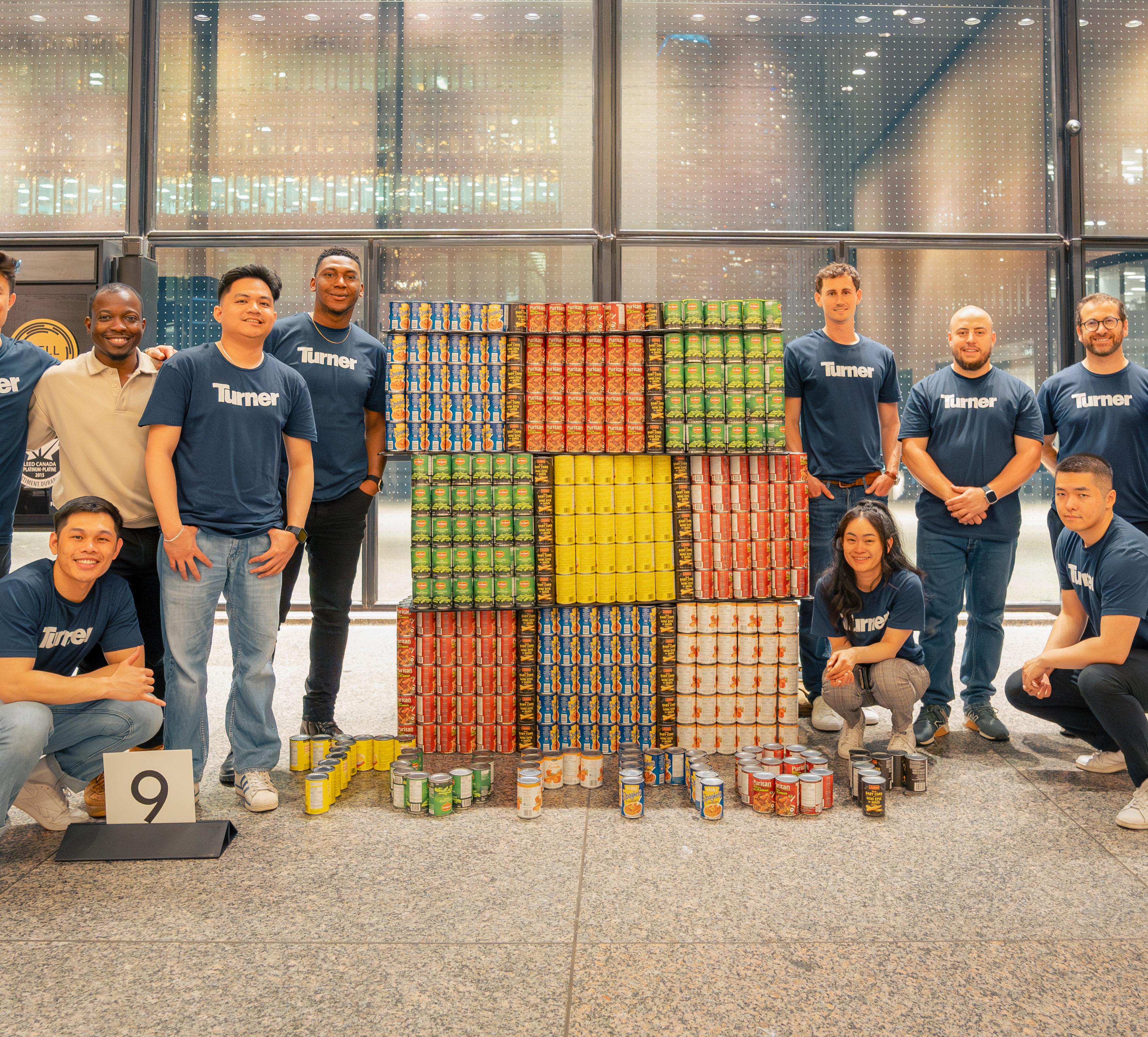
The Titans Project is making a profound impact on Nashville, fostering economic development, workforce training, supporting our future builders, and community engagement. This initiative focuses on creating meaningful opportunities, strengthening local businesses, and developing the next generation of industry leaders.
To cultivate a pipeline of future construction professionals, the Titans Project actively engages K-12 students through site visits and interactive learning experiences. Events such as the Twister STEM event, held at Nashville’s Adventure Science Center, introduced young girls to engineering and project management careers, inspiring them to consider paths in the construction industry.
A notable initiative includes partnership with a local high school to launch a construction program, giving students an opportunity to explore industry-related careers early. The hands-on exposure and mentorship from professionals provide invaluable insights and encourage students to pursue technical careers.
Community involvement is at the heart of the Titans Project. A memorable example is the art competition held for local students, where selected artwork was displayed on the project’s scrim during the groundbreaking ceremony. This initiative, in collaboration with Titans’ “One Community”, PENCIL (Public Education Needs Community Involvement and Leadership), and Metro Nashville Public Schools, fostered a sense of pride and connection among residents.
Additionally, the project has hosted various community organizations, city officials, and local leaders, offering tours and informational sessions. The strong emphasis on transparency and inclusiveness ensures that the project remains aligned with the community’s needs and aspirations.

One of the most significant elements of the Titans Project is its commitment to economic development. The initiative prioritizes engagement with local businesses and trade partners through office hour events. These sessions, held in Nashville, Memphis, and Knoxville, allow diverse, small, local and Disadvantaged Business Enterprises (DBEs), to connect with the project team and access bidding opportunities.
Additionally, targeted outreach sessions have been implemented to ensure that subcontractors have opportunities to collaborate with prime contractors, thus fostering a more inclusive economic environment. Programs like the “G.A.M.E. Plan” initiative provide small businesses with growth strategies to sustain their operations beyond the completion of the project. Entree Savvy, the Disadvantaged Business Enterprise (DBE) Consultant for the project’s program, G.A.M.E. PLAN, is a dynamic initiative designed to empower small businesses with the essential tools, skills, and knowledge needed for sustainable growth. Tailored for DBE firms that have contributed to the construction of the Tennessee Titans’ new stadium, this concise program features four two-hour sessions that are both straightforward and highly practical. Participants receive a personalized, results-driven action plan, an intuitive dashboard that deciphers their accounting data, a proven formula for effectively marketing their products or services, and access to a wealth of valuable resources.
The Titans Project is committed to workforce development through initiatives like the Titans Construction Training Camp. This 200+ -hour preapprenticeship program prepares individuals with no prior experience for careers in construction. The program is free, and participants are paid $18 per hour while receiving industry-recognized certifications. The Tennessee Builders Alliance is partnering with over 40 local community and nonprofit organizations to ensure success for those in our programs through wraparound support services.
Furthermore, strategic partnerships with leading companies like DeWalt and Milwaukee provide trainees with essential tools and equipment. Graduates also receive work boots from local supplier Elliott Boots, ensuring they are well-prepared for their new careers.
The Titans Project is already transforming lives in remarkable ways. One of the standout stories is that of Jason Lovett, a former math teacher who joined the workforce training program and emerged as an inspiring figure. His journey from overcoming hardship to becoming a keynote speaker at the Titans’ team kickoff dinner is a testament to the program’s effectiveness. Similarly, two women from the first workforce cohort were hired by an excavation partner on the project. One of them is now planning to start her own business, illustrating how this initiative goes beyond job placement to foster long-term career growth.
In another inspiring moment, the Titans and Nissan surprised Myles Gooch, Cohort 2 graduate and current Turner SPO employee, with a new Nissan Frontier during the last home game of the season. This gesture speaks volumes about the impact our workforce initiatives can have and how they continue to inspire positive changes in our communities.

As the project progresses, its impact continues to grow. With dedicated job portals, ongoing workforce training, and deep community engagement, the Titans Project is more than just a construction endeavor—it’s a movement shaping the future of Nashville.
The initiative’s unwavering focus on inclusivity, education, and local economic empowerment ensures that its benefits will be felt for generations to come. This project is a model for how major developments can integrate social responsibility into their core mission, proving that building infrastructure and building communities can go hand in hand.
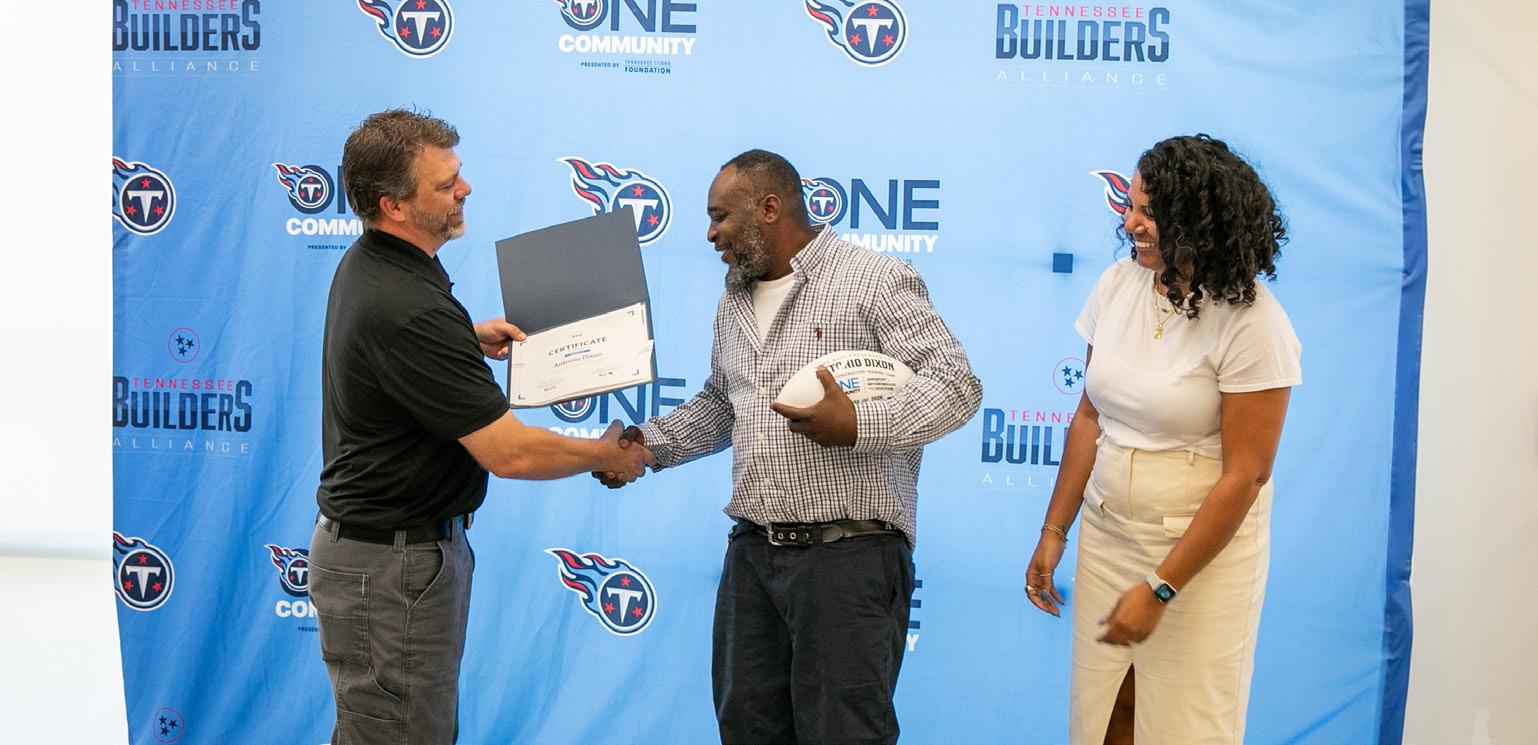


Turner empowers future industry leaders through hands-on experiences and strategic partnerships. Programs like the ACE Extern and Youth Construct move students beyond exposure toward real career opportunities, creating inclusive pathways that inspire and equip young people to build successful futures in construction and related fields.
Turner is proud to reflect on another milestone year for our ACE Extern Program, which provided hands-on experience and industry exposure to students interested in the construction field. In 2024, we hosted 101 students across our business units, the highest number of participants in the program’s history.
The program’s impact was evident in the feedback from students. Over half of the students participating reported increased interest in construction management as a career path after their externship. Additionally, 84% stated that their experience at Turner exceeded expectations, and an overwhelming 96% expressed a desire to stay connected with Turner for future internship or full-time career opportunities.
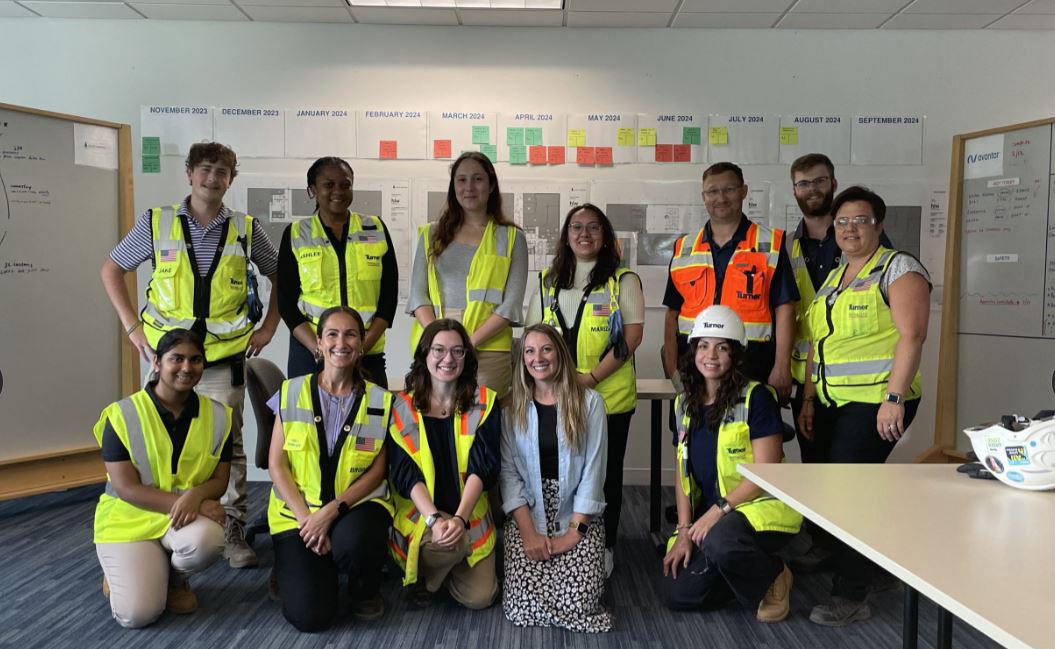
These outcomes reflect Turner’s continued commitment to developing future industry leaders through meaningful, hands-on learning. The success of the ACE Extern Program demonstrates the value of investing in early career exposure, providing students with critical insights and inspiration to pursue careers in construction.

As part of Turner’s commitment to building a stronger, more inclusive industry, we are working to expand access to construction and real estate careers for the next generation of talent. hrough its partnership with Youth Construct, Turner is opening pathways into Architecture, Engineering, Construction, and Development (AECD) for New York City high school students.
Youth Construct operates like a college course, meeting twice a week from November to May, with each cohort including about 25 students. Participants receive foundational AECD training and earn credentials such as Site Safety Training (SST) cards, learner’s permits, and notary certifications to enhance their job prospects. Students also receive stipends and access to competitive internships for practical experience.
Turner contributes through hands-on training at its NYC offices, offering courses in project management, construction methods, and workplace culture, along with site visits and speed mentoring sessions with professionals.
As Turner enters its fourth year of partnership, the company remains committed to building a diverse talent pipeline and helping students launch meaningful careers in the AECD industries. While the program’s graduates are just beginning their college journeys, early results point to a promising future for the next generation of builders.




Community engagement is a foundational part of how we build. Before work begins on any site, we develop tailored engagement plans that reflect the unique needs and priorities of the surrounding area. Through focused efforts in outreach and service, we embed community connections directly into our construction approach to create meaningful, lasting impact.
Turner’s Cleveland team partnered with the Greater Cleveland Food Bank to participate in a poverty simulation that shed light on the daily challenges faced by individuals living below the poverty line.
The immersive event placed participants in simulated family roles, asking them to make difficult decisions around housing, food, employment, and healthcare, all while managing limited resources. The experience provided a visceral understanding of the interconnected struggles many face and sparked thoughtful conversations around empathy and impact. More than an eye-opening exercise, it served as a catalyst for action. Turner is now applying these insights to strengthen its approach to workforce development and community engagement. By better understanding the barriers that underserved populations encounter, Turner is committed to creating more inclusive and supportive opportunities—ensuring its projects reflect, uplift, and empower the communities in which it builds.


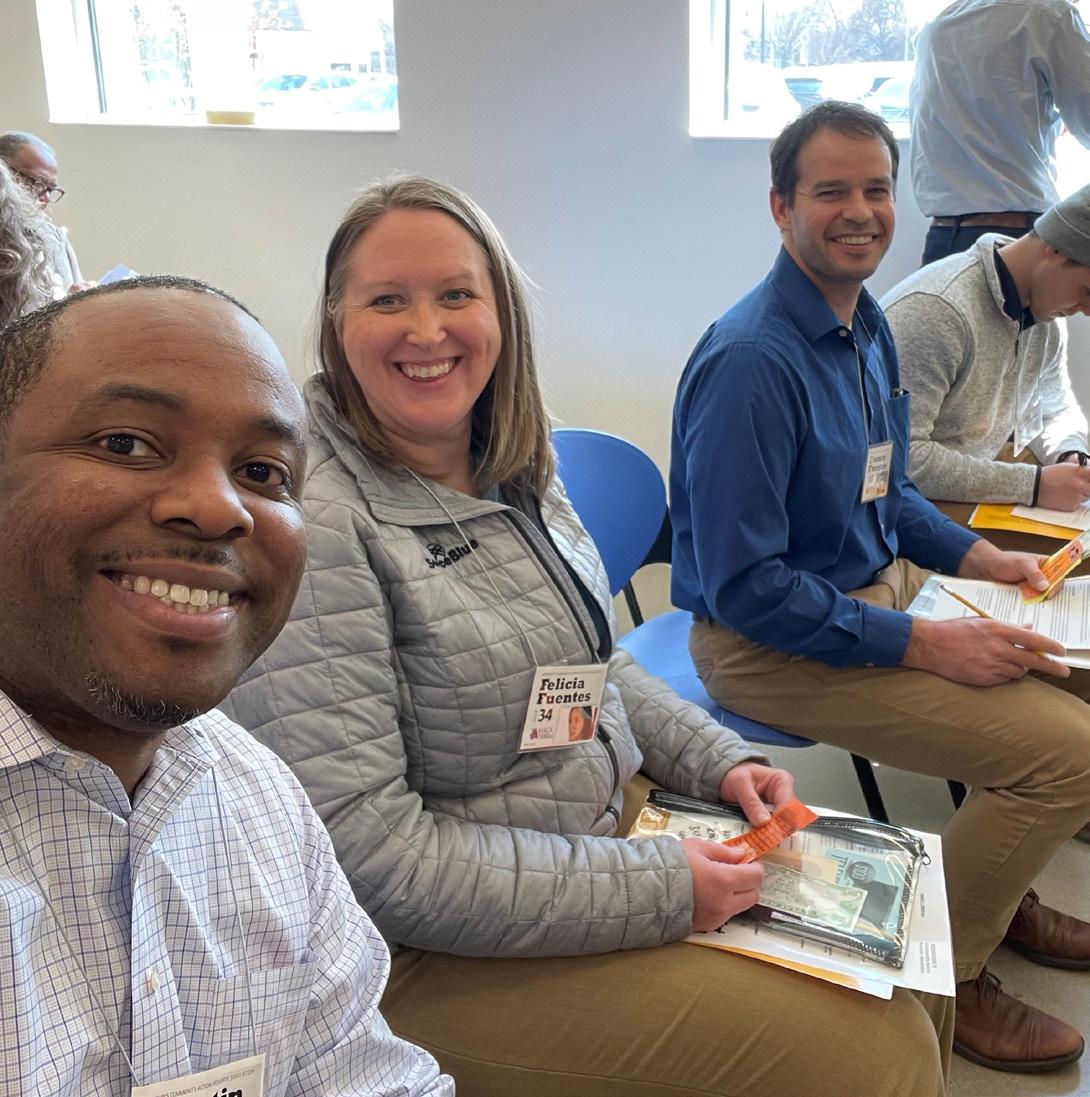
We’re building a stronger industry workforce by expanding access to hands-on training and real career pathways. Through targeted programs, we equip individuals with the skills and experience needed to thrive in construction, addressing the skilled labor gap and helping grow the next generation of builders.

Turner is committed to supporting young people in the communities where we live and build—and our recent partnership with YouthBuild exemplifies that commitment to workforce development. Launched in 2024, the partnership creates career opportunities in construction for young adults aged 18–24, many of whom face personal and academic challenges or are working toward their GED.
The initiative is already making an impact, even in its early stages. Turner supports YouthBuild with direct funding, on-site exposure, and training sessions led by Turner staff and trade partners.
Rather than creating a new program from scratch, Turner chose to strengthen YouthBuild’s existing curriculum and help grow the local trades workforce. “Why not strengthen what already exists in San Antonio, help train, and bring more workers into construction?” says Marques Mitchell, Turner’s Business Development Sr. Director.
Turner contributed $20,000 in unrestricted funding—raised through its annual golf tournament—allowing YouthBuild to expand access beyond strict income requirements. The new funding opens doors for more participants to benefit from training and mentorship, Previously, some young adults were excluded despite needing career support. Looking ahead, Turner plans to deepen the partnership by supporting
additional training opportunities and increasing staff involvement in classroom sessions to offer real-world insights into construction careers.


For Shermeka Hudson, Turner’s Community and Citizenship Manager in San Antonio, the mission is personal: “I have a passion for working with young adults, helping them understand that not everyone’s path looks the same. Whether it’s college, the trades, military, or specialty certification programs, the goal is to help them find their own success.”
This partnership reflects Turner’s broader effort to build an inclusive, skilled construction workforce by investing in young talent and expanding access to meaningful career pathways.

The construction industry faces a significant workforce shortage, with skilled labor gaps affecting projects and communities nationwide. To address this challenge, Google developed the Skilled Trades and Readiness (STAR) program, a workforce development initiative designed to train individuals for entry-level roles in the construction sector. We have collaborated with Google to implement this program, contributing to its success in several regions.


The STAR program, funded and developed by Google, is a five-week, paid pre-employment training designed to create opportunities for individuals from underrepresented communities. Through a combination of classroom instruction, hands-on practice, and construction site visits, participants gain exposure to various skilled trades, including electrical, carpentry, HVAC, welding, and plumbing. The program also offers professional networking opportunities to assist students in entering the workforce upon completion. Participants earn industry-recognized certifications such as OSHA-10 and CPR/First Aid, preparing them for entry-level positions in construction.
As a collaborator in the STAR program, we work alongside community colleges, trade organizations, and local nonprofits to facilitate training, recruit participants, and support job placement. Our involvement has been instrumental in implementing the program in states such as Ohio and South Carolina.
In Ohio, we supported the graduation of four STAR cohorts, with 47 participants achieving a 100% graduation rate and 44 securing job placements.
In South Carolina, we facilitated two additional cohorts, achieving a 100% graduation rate, with all 11 participants securing positions with our Self-Perform Operations (SPO) or our trade partners.
A key factor in the STAR program’s success is the strong relationships built with local community partners.
We collaborate with community colleges, workforce development nonprofits, and trade unions to create a clear pathway from training to employment. This collaborative approach ensures participants have direct access to employment opportunities.
Vanessa Jester, Community & Citizenship Director, emphasizes that “The secret to this program’s success is the relationships we’ve built—with community colleges, nonprofits, and trade partners. It’s a team effort that’s changing lives and addressing the industry’s workforce needs.”
We aim to create lasting workforce opportunities while addressing labor shortages in the construction industry. As the STAR program continues to expand, Turner remains committed to supporting its growth, ensuring it remains an effective and scalable workforce development model.
Beyond job placement, the STAR program transforms lives. Participants often start with little construction experience but graduate with valuable skills and stable jobs, benefiting both their families and communities.
Our partnership with Google on STAR highlights how collaboration drives workforce development, our support to the program has helped connect participants to education, training, and careers. As the program grows, we remain committed to developing a skilled workforce and positively impacting the industry and communities.
“One graduate at a time, we’re changing families, communities, and neighborhoods. It’s inspiring to see participants encouraging their friends and family members to join, creating a positive cycle of opportunity,” Vanessa said, highlighting the program’s growing impact and lasting legacy.
We are actively advancing economic development in the communities where we build. Our projects don’t just take shape on the ground, they generate local jobs, strengthen small businesses, and channel investment directly into our local neighborhoods. Through ongoing engagement with community stakeholders, we ensure our construction efforts deliver lasting economic value and support resilient, thriving communities.

See What Resiliency Looks Like in Action
In an era of disruption, Turner is doing more than adapting—we’re leading. Watch how we’re transforming supply chain uncertainty into strategic opportunity.
In the evolving landscape of construction and environmental responsibility, She Hauled It, a woman-owned hauling and waste management company, is making a lasting impact as an Underutilized Business Enterprise (UBE) in partnership with Turner. Rooted in a mission of sustainability and innovation, the company represents a growing wave of historically unrepresented enterprises redefining industry standards through both community impact and environmental stewardship.
Founded and operated by a visionary entrepreneur, Jenny Muntzel, She Hauled It offers sustainable waste solutions designed to reduce landfill contribution and promote recycling across job sites in Kansas City. As a proud participant in the Turner School of Construction Management, the company gained not only technical knowledge, but also a platform to expand its capabilities and network within the construction sector.

“The Turner School of Construction Management gave me the tools to compete, to grow, and to lead confidently in this space,” said Muntzel. “Being a part of Turner’s network has opened doors and allowed me to operate with purpose, especially when it comes to building a more sustainable Kansas City.”
Turner's commitment to supporting underutilized businesses like She Hauled It is evident through active engagement, mentorship, and the integration of diverse partners into high-impact projects. By aligning with Turner, She Hauled It is not only contributing to environmentally conscious construction practices but also setting a precedent for what inclusive innovation can look like in real-world applications.
With a strong foundation and a clear sense of purpose, She Hauled It continues to grow its influence in the region, proving that sustainable practices and entrepreneurial diversity are essential components of the future of construction.
As part of Turner’s commitment to developing the next generation of builders, our Cincinnati office is taking bold steps to shape the future of the construction industry through its innovative programs. At the heart of these efforts is the Turner x Trades Training (T3) Program, a comprehensive initiative designed to introduce high school students to the world of construction management and skilled trades.
Rather than a one-time workshop or career fair, Cincinnati’s Future Builders programming is built on sustained engagement with students. By fostering long-term relationships, these programs create meaningful pathways to economic advancement. The T3 Program plays a central role in this approach, offering a series of structured lessons that guide students through key aspects of the construction industry.
Through multi-session programs, students gain practical skills and an understanding of the vast opportunities within construction.
The T3 Program builds on these foundations with a two-year pathway into construction trades. In junior year of high school, students explore construction management and trade careers through hands-on experiences with Turner’s industry partners. Senior year focuses on career preparation, including workforce development, resume building, and networking; connecting students with unions, workforce organizations, and educational institutions to plan for post-graduation. Throughout both years,
the students have the opportunity to better understand the life cycle of a construction project through continuous engagement with a local project team, following each phase of the project from start to finish.
While the program’s goal is to equip students with skills for any construction career, Turner actively engages with graduates, offering potential employment opportunities. At the same time, the program recognizes that students may pursue different paths, whether through trade apprenticeships, college degrees, or direct workforce entry.
With a focus on both construction management and skilled trades, Cincinnati’s Future Builders initiative is creating clear, structured pathways for students to succeed. By combining education, handson experience, and industry connections, the program is setting up the next generation for long-term success in the construction industry.
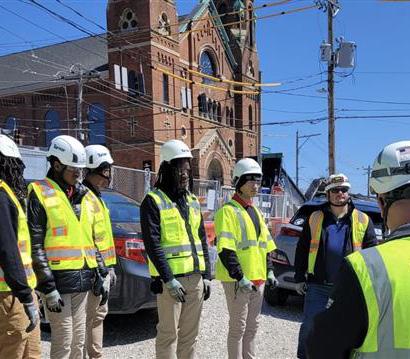





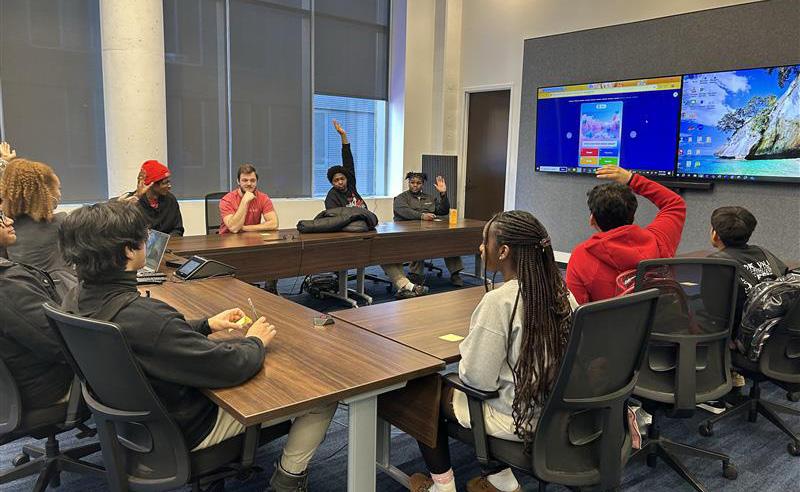
Turner relies on employee ingenuity and external collaboration to achieve ambitious goals. We drive innovation, improve industry practices, and enhance global impact. Through process improvements, standardization, and third-party certifications, we ensure efficiency, validate systems, and meet reporting needs—advancing both our company and the broader construction industry.
Turner drives innovation by equipping employees with tools and structure to turn ideas into action. Through our Innovation Challenge program, employees are empowered to pursue purposeful improvements, whether through new technologies or process refinements, that enhance efficiency and performance on the ground, ultimately aligning with Turner’s business goals and broader vision. This culture of innovation is embedded across our operations, fueling practical solutions with real-world impact.

With the construction industry rapidly evolving in response to sustainability demands and technological advances, Turner is leading the way. With the launch of Turner Ventures, our dedicated venture capital arm, we’re not just keeping pace, we’re driving change. Turner Ventures is actively investing in early-stage companies developing breakthrough solutions in AI, green energy, decarbonization, and digitalization, aligning directly with our ESG commitments: sustaining our planet, caring for people, and transforming our industry.
While Turner Ventures is a new initiative, it builds on years of successful collaboration with startups tackling challenges like reducing embodied carbon and energy efficiency in the built environment. By formalizing our investment approach, we’re accelerating access to ClimateTech solutions that have the potential to reduce emissions, enhance project performance, and support our long-term goal of achieving net-zero.

Through Turner Ventures, we’re backing missiondriven startups that share our commitment to innovation and environmental stewardship—giving them a powerful springboard for market adoption, while providing our clients and partners direct access to the next generation of promising technologies and tools.
- Jim Barrett Vice President & Chief Innovation Officer
Our unique three-tiered approach supports startups at every stage of their journey:

WHO? Startups with validated concepts or prototypes needing hands on collaboration to refine and test solutions on real projects.
WHY? Pilot solutions within Turner’s ecosystem, by gaining valuable feedback, and accelerate market readiness.

WHO? Startups focused on construction technology, sustainability, or innovative solutions seeking mentorship and market traction.
WHY? Strengthen start-up product strategy and market credibility with guidance and industry insights.

WHO? Growth-ready startups from late seed to Series A with proven traction and scalable potential.
WHY? Access Turner’s capital, strategic partnerships, and global network to scale startup business.

Subtraid exemplifies how Turner Ventures fosters purposeful innovation through Turner Ventures Incubate and Invest pathways. The startup first engaged with us through Turner’s EntrepreneurIn-Residence (EIR) program, where we quickly recognized the startup’s potential. Under the guidance and mentorship of Turner Ventures in the Incubate pathway, and by leveraging Turner’s extensive business e cosystem, Subtraid collaborated with Turner Surety and Insurance Brokerage Inc. (TSIB) to refine its product-market fit from a broad construction management solution to a focused offering explicitly tailored for the insurance sector. This strategic pivot accelerated the company’s go-to-market plan by focusing on underwriting and brokerrelated inefficiencies. Turner Ventures made a formal investment in 2025, supporting Subtraid’s product launch and market expansion. Today, Subtraid stands poised to transform insurance brokers’ operations, demonstrating how targeted mentorship, pilot opportunities, and capital investment can catalyze meaningful change in the broader industry.
Clearstory illustrates how Turner Ventures’ Ignite pathway elevates emerging solutions that are ready for broader market adoption. First discovered by Turner teams in 2020, Clearstory’s platform streamlines the change order process by enhancing transparency and accountability among trade partners, project teams, and stakeholders. We formalized an Ignite advisory partnership based on early success within Turner, offering comprehensive mentorship, access to our vast project network, and user feedback. Turner Ventures joined Clearstory’s Customer Advisory Board, jointly piloted new features, and signed an enterprise agreement for broader implementation. Leveraging Turner’s network, Clearstory has also connected with key industry players globally, significantly expanding its market visibility and influence. Our partnership highlights Turner Ventures’ commitment to nurturing and strategically positioning technology startups, enhancing their growth trajectory, and reinforcing Clearstory’s position as a leading innovator in PropTech.

For more information, visit www.turnerconstruction.com/ pages/turner-ventures
Over 300 professionals from Turner and our global family of companies, including ACS, CIMIC Group, Clark Builders, DRAGADOS, FlatironDragados, HOCHTIEF, Iridium, and Real PM, gathered in Miami Beach for our 9th Annual Innovation Summit. United by the theme Expanding Horizons: Exploring Beyond What Is to What Could Be, the summit encouraged participants to break from established norms and envision bold new possibilities, particularly in the face of global changes in reshaping industries today.
Over three days, attendees examined practical strategies for applying advanced technology, artificial intelligence (AI), energy transition, and sustainable infrastructure solutions to build a more resilient, low-carbon future. Keynote presentations and hands-on workshops explored how AI can streamline project management and digitally transform jobsite workflows. Speakers also shared insights on energy transitions and the decarbonization of operations through natural hydrogen and smart energy grids.
Guest speakers included Adam Goldberg from OpenAI, AI expert and NYT bestselling author Ethan Mollick, serial entrepreneur Josh Linkner, futurist & urbanist Greg Lindsay, Courtney Scharf from Trend Hunter, Fifth Wall’s Partner and Co-Head of ClimateTech Greg Smithies, Meta’s Area Director of Data Center Construction Tory Sigler, and Cornell Tech’s founding member Karan Girotra.

A notable presentation by Greg Smithies, Partner and Co-Head of ClimateTech at Fifth Wall, the largest and most active investor in decarbonization for the built environment, highlighted the potential of natural (geologic) hydrogen as a clean, primary energy source. Smithies emphasized natural hydrogen’s global availability, its disruptive potential within energy transitions, and increasing investment and interest from leading industry players and underscored the critical importance of innovation and strategic foresight to leverage natural hydrogen for sustainable global energy solutions.


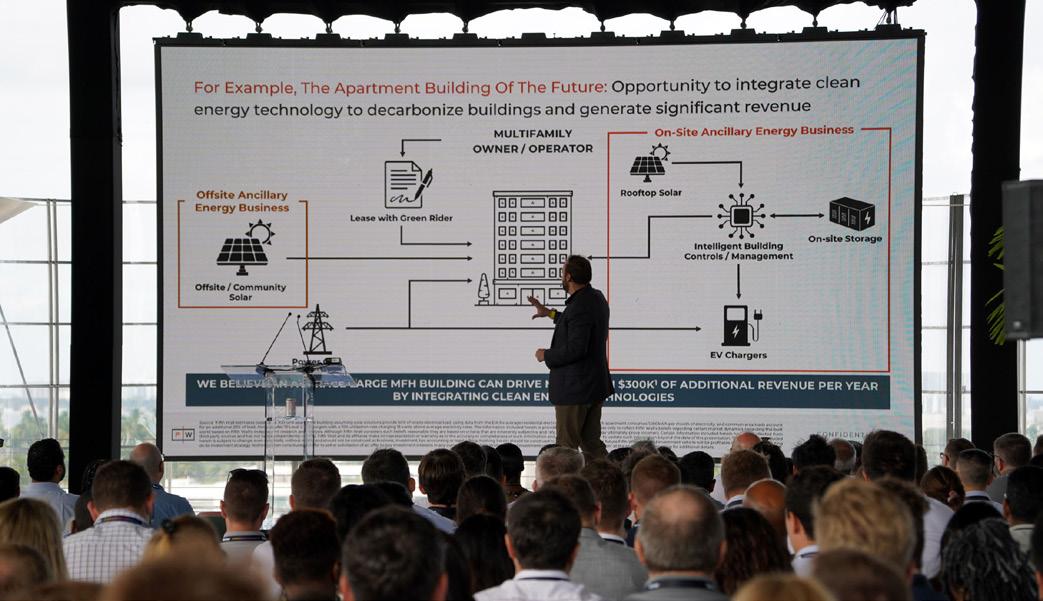
Turner introduced its three-pronged AI strategy, Empower, Improve, and Transform, designed to boost employee productivity, streamline cross-departmental efficiencies, and identify transformative opportunities to reshape our industry. An engaging panel discussion showcased Turner’s successful implementation of ChatGPT Enterprise to boost operational efficiency and reduce routine work.
The summit also emphasized cross-company collaboration. Leaders from ACS Group-affiliated firms shared breakthroughs in areas such as resilient infrastructure, circularity, urban mobility, and autonomous transit solutions. Turner and our partners are learning from one another, sharing what works, and applying those insights to improve outcomes across our projects globally.
Turner remains committed to creating positive change across the built environment, prioritizing innovative, real-world solutions aligned with evolving global needs. By embracing forward-thinking technologies and new business models, we continue empowering our teams, protecting our planet, and fostering sustainable growth—solidifying our leadership role in building a brighter, more resilient future.
At Turner, respecting and promoting human rights is fundamental to how we operate, both within our business and across our supply chains. Our Human Rights Corporate Management System (HRCMS) is designed to align with the requirements of international legislation, to proactively identify, prevent, and address risks to people and the environment.
The HRCMS is overseen by our Chief Human Rights Officer, Rosemarie Demonte, and our Human Rights Committee who work to monitor risk and drive continuous improvement. Supported by an interdisciplinary team from ESG, HR, Procurement, Legal, Sustainability, Safety, Operations, and Compliance, we integrate human rights considerations into our daily operations, supplier relationships, and corporate policies.
In 2024, we conducted comprehensive abstract and concrete risk analyses across both our business activities and our direct suppliers. While no significant risks were found internally, we partnered with suppliers to identify and mitigate potential issues.
Our grievance mechanisms remain critical component to our HRCMS, offering accessible, anonymous, and multilingual channels to employees, suppliers, and external stakeholders. The steady use of our hotline reflects a culture where individuals feel empowered to speak up, ask questions, and raise concerns- an essential indicator of a trusted and effective system. Each case managed through the hotline was handled with care, transparency, and a focus on corrective action and long-term improvement.
Looking ahead, we will continue to strengthen our human rights management through regular review processes, internal training, and collaboration. By embedding human rights into the foundation of our risk management and corporate culture, we aim to meet legal obligations and demonstrate industry leadership in building a responsible, resilient value chain.

We bring our values to life through transparent and accountable business practices. Our strategy reflects our culture and focuses on where we can make the greatest impact. We regularly assess our progress, share openly with stakeholders, and challenge ourselves to lead with integrity across all aspects of our work.

ESG implementation at Turner is driven by teams embedded across our work, with champions from nine functional areas working at both the local office and project level.
These efforts are guided by ESG Coordination Leads who serve as the central point for aligning reporting, fostering collaboration, and ensuring consistency.
We’re proud to spotlight a few of the people bringing our ESG efforts to life on the ground:

Kayla Reddington
Sustainability Manager and ESG Coordinator: With an engineering background and a passion for climate-forward building, Kayla supports crossfunctional implementation efforts in the Pennsylvania–New Jersey region with a focus on sustainability. In 2024, she led proactive sustainability efforts on a major healthcare project despite the absence of a formal client mandate and without increasing the budget. Her leadership helped secure a 15% GWP reduction in concrete and implement innovative low-waste strategies, even in a logistically challenging location. Kayla continues to grow Turner’s partnerships with designers and clients to push the market forward—and loves when sustainability isn’t just required, but prioritized by choice.

Andrew Leone
Operations Safety Executive and EH&S Lead: Andrew Leone is a dedicated environmental health and safety leader with a strong record of driving companywide progress. In 2024, he played a key role in developing Turner’s wildfire and air quality response plan—now integrated nationally into our severe weather preparedness strategy. As a newly appointed Operations Safety Executive, Andrew is shaping the future of safe construction by fostering cross-company alignment, driving consistency, and reinforcing a culture where every worker returns home safely. His leadership reflects Turner’s commitment to innovation, accountability, and protecting the well-being of those at the heart of our projects.

Mylene Garcia
Marketing Manager and C&C Lead: In 2024, she helped organize Turner Toronto’s largest CANstruction campaign yet, donating over 22,000 cans to the Daily Bread Food Bank. She plays a key role in organizing Turner’s participation in the Pet Valu Walk for Dog Guides, Turner’s third year proudly sponsoring and walking in support of the cause to raise vital funds. From leading the planting native trees to coordinating the removal of invasive species, Mylene’s work brings teams together and strengthens community ties. For her, the biggest reward is seeing people, employees, families, and neighbors, united through service.

Nelson Russom Waste & Circularity Program Manager: In his work with the HQ Sustainability Team, Nelson Russom is leading Turner’s efforts to reframe waste as a material asset, advancing the company’s shift toward a more circular economy. In 2024, he worked to deepen internal awareness around circularity and laid the foundation for future-facing strategies that prioritize adaptive reuse, materials transparency, and landfill diversion. Looking ahead, Turner is building partnerships with manufacturers and recyclers to help transform waste streams into economic and social opportunity. Nelson’s work is not only accelerating Turner’s diversion goals but also shaping new business models that align environmental ambition with tangible, on-the-ground results.
In 2024, Turner advanced its commitment to strong governance, ethics, and operational excellence by achieving several significant ISO (International Organization for Standardization) certifications. These certifications reflect our focus on continuous improvement and dedication to protecting our people, supporting ethical decision-making, and enhancing environmental stewardship.
Turner earns ISO 37001 certification for anti-bribery management systems and ISO 37301 for compliance management systems. These certifications our established systems to promote a culture of integrity, transparency, and accountability. They also reinforce our commitment to ethical business practices and align us with global best practices in risk management and regulatory compliance.
“ISO certification is a great accomplishment for Turner,” said Patrick Blake, Turner’s Chief Compliance Officer. “Achieving the ISO-37001 and ISO-37301 certifications confirms that Turner has a robust ethics and compliance program to support our people in upholding our culture of integrity and honesty.”
The ISO certifications enables us to offer our clients even greater confidence in our ethical practices and compliance standards, solidifying our commitment to building exceptional projects with trusted partners.
- Ken Winfield Director of Compliance
“Our employees are obligated to maintain the highest standards of business conduct,” said Ken Winfield, Turner’s Director of Compliance. “The ISO certifications allow us to offer our clients even greater confidence in our ethical practices and compliance standards, solidifying our commitment to building exceptional projects with trusted partners.”
Turner also completed the certification process for ISO 14001 in 2024, a global standard for environmental management systems. This affirms our proactive efforts to reduce environmental impact, manage resources responsibly, and integrate sustainability practices into daily operations.
We also expanded our ISO 45001 certification, which supports occupational health and safety. This expansion strengthens our commitment to safe, healthy work environments for all employees, trade partners, and stakeholders. It enables us to identify risks early, apply effective controls, and improve safety practices. Together, these certifications reflect Turner’s proactive approach to governance and risk management. By aligning our operations with globally recognized standards, we are protecting people, safeguarding the planet, and strengthening trust with our clients and communities.
Scan to watch a day in the life of Turner the Pup
Turner’s collaboration with the Lions Foundation of Canada on their new Dog Guides National Training Centre exemplifies the strength of purpose-driven client engagement. The 89,000-square-foot facility in Oakville, Ontario, will more than double the foundation’s capacity to train service dogs for Canadians with medical or physical disabilities. The client chose Turner for both our construction expertise and our shared commitment to the foundation’s mission
Throughout the project, Turner teams engaged closely with the client to ensure the design and construction reflected the unique needs of the dogs, trainers, and future clients. From specialized training environments to thoughtfully designed living and learning spaces, every detail supports the organization’s life-changing work.
Beyond the build, Turner embraced the foundation’s mission on a personal level, sponsoring and naming a future Dog Guide, Turner the Pup. She was adopted by two Turner employees, Lara and Zafer, both members of the project team, who are taking turns raising her with care and commitment.
As she prepares to begin formal training this summer, Turner the Pup represents the hope of becoming a life-changing companion to someone in need. Her presence has brought joy to the entire team, she’s become a beloved fixture on site and can often be found in the jobsite trailer, happily greeting everyone who walks through the door.




The project demonstrates how we partner with clients not just to deliver facilities, but to advance their mission and social impact. It’s a powerful example of how governance comes to life through transparent collaboration and shared purpose.

At Turner, we are Building Today to Transform Tomorrow™. Our 2024 ESG report shows how we are bringing that vision to life. It is more than a record of progress, it is a reflection of how we are turning our ESG commitments into action: project by project, team by team, and decision by decision.
In 2024, we moved decisively from planning to execution across our organization. We scaled the use of electric equipment and renewable fuels, deployed closed-loop water systems, and expanded embodied carbon tracking across our portfolio. These actions reflect our commitment to making sustainability operational, measurable, and fully integrated into daily execution.
We also strengthened our efforts to create a more inclusive and respectful workplace across our industry. Through training, workforce development, and strong partnerships with suppliers and community organizations, we opened pathways to opportunity and ensured our projects reflect and uplift the communities we serve.
Innovation came to life through practical application. From piloting low-carbon materials with self-perform teams to guiding clients through decarbonization planning and procurement, we delivered real-world solutions that drive performance and accelerate impact.
Our progress is the result of people working with purpose: driven by care for each other, our communities, and our planet. We are determined to lead by example, inspiring change and creating lasting value. Together, we are Building Today to Transform Tomorrow™.
Sincerely,
The ESG Team

Christa Andresky
Executive Vice President, Chief Financial Officer

Lisa Ballantyne Chief Administrative Officer

Jennifer Downey Director of ESG

Christa Andresky - CFO
Pete Hamill – SVP
Jennifer Downey – Director of ESG
Jodi Rennie - SVP
Lisa Ballantyne - SVP
Paul Parmentola - VP
Jason Jones – SVP
Jim Barrett – Innovation
Suzanne Bennett – SourceBlue
Mike Bruskin - Procurement
Fuquan Collins - DEI, C&C
Shannon Hines - SPO
Julia Gisewite – Sustainability
Chris McFadden – Communications
Lisa Moving - DEI
Erica Rosenberger - Human
Resources
Greg Smith – Preconstruction
Steve Spaulding - EH&S
Ken Winfield – Compliance
Paul Wypasek – Learning
Headquarters Leads
Robert Barbera
Edward Barry
Emily Belote
Patrick Blake
Mike Bruskin
Halima Cherif
Maryann DeRusso
Leah Dobbins
Mary Edrehi
Jamie Evans
Dominick Fortuna
Xavier Hairston-Khan
Kristine Harrison
Todd Hatley
Shannon Hines
Kathleen Igoe
Martha Katalevsky
Steve Kates
Karl Kinsella
Lindsey Landwehr-Fasules
Douglas LaPlante
Andrew Leone
Cheryl Leweke
Claribel Mateo
Barbara Molloy
Lisa Moving
Maria Pantelaros
Rowan Parris
Nadeen Qaru
Thomas Reilly
Abigail Roberts
Erica Rosenberger
Nelson Russom
Lisa SanFilippo
Colin Schless
Monika Serrano
David Sheidlower
Kristofer Wahl
Monica Wentz
Emily White
Paul Wypasek
Allie Sigmon
Emma Haynes
Evan Brophy
Halima Cherif
Jennifer Downey
Kathlyn Molyneux
Monica Wentz
Will Gelatko
AAaron DeRosse
Aaron J Donahue
Abdon J Friend
Adam Saltmarsh
Alexander Rey
Alicia Cornford
Alison P Stanton
Alistair Mcintyre
Andre Winston
Andres Orozco
Andrew J Leone
Andy Kavanaugh
Angela E Westerhaus
Anthony E Singh
Ashlee Essex
Bianca Johnson
Bob Grimes
Brad Carter
Brad A Simmons
Brett Stuckey
Brian Sabom
Brian K Sauer
Brintel C Johnson
Brittney Parkinson
Brouck Amerga
Jake Hanevelt
Jamie L Posey
Janice Haughton
Jay Compton
Jay Harding
Jeff Dolan
Jeffery D Logan
Bryan Chester
Carlos M Torres
Caroline H Murray
Carolyn Rivera
Chase Hochstetler
Cheryl L Leweke
Chris Rasmussen
Chris Parker
Chris Vienneau
Christian Kalmar
Christina Alvarado
Christina Mach
Christopher R Pepey
Colleen McCandless
Daniel A Forseter
David Rollyson
Debora Cornejo Vera
Dexter L Hendricks
Donald Hellen
Doris M Montgomery
Douglas P LaPlante
Dwayne Reid
Edgar Salazar
Ejike Ohuegbe
Emi LaFountain
Ertugrul Aksoy
Gabriella L Frizlen
Garrett N Morin
Gavin Banks
Geoff P Moore
Herbert Brown
Hollie Burtt
Ian Smith
International
Jackie Aguilar
Jacquelyn M Jones
Michael Blackburn
Michael Mielcarek
Michael A Newman
Michelle Jaure
Mike Bahr
Mimi Flatley
Mylene M Garcia
Jen E Blue
Jennifer A Galatas
Jillian N Axisa
Joe Botto
Joe Dziengelewski
John Griffin
Jose J Rodriguez
Joshua Lloyd
Kaj Osterback
Kate Beysselance
Katie Wilkinson
Kayla Reddington
Kelly DeGurse
Kenneth Faas
Kevin Cooke
Kevin M Rawson
Kevin P McCormick
Kirsten A Deenik
Kripa I Keswani
Kristen Smitherman-Voltaire
Kristin E Lanier Tanner
Kurt W Smith
Kyra Tyson
Lee Crump
Lillian Ching
Lisa M Czech
Logan Liddle
Louis Martinelli
Lydia Knowles
Lydia H Liang
Lynzie M Bruce
Marc Turcot
Margaret M Simone
Mark J Ogden
Mauricio A Romero
Mersy Maradiaga
Thomas P Donnelly
Thomas P Dutchyshyn
Thomas R Zelem
Timothy Sabo
Timothy Blood
Timothy M Dare
Tom McCarthy
Navaz Porbandarwala
Nicholas A Kuelske
Nicolas Levesque
Olcay Aciksoz
Osama Nasir
Pamyla L Fountain Brown
Patrick Coughlin
Patrick R Tobin
Paul Corbett
Peter Fox
Peter J Johnson
Phil Restivo
Phil Yama
Ralph Desiderio
Randy Kryzyk
Rebecca Schmidt
Rohit Sharma
Ronald H Covo
Rowan Parris
Salvatore Gambino
Samir Raza
Sarah A Lippai
Scott D Cole
Scott M Edwards
Sean Crockett
Serena Roman
Shawn K Simms
Stefanie A Eversgerd
Stephanie A Isilebo
Stephany A Lorenzo
Steven T Whitcraft
Tamaka Thornton
Theodore J Duros
Theresa Schroeder
Thomas Sawyer
Thomas F Daus
Trish Campbell
Tuan Nguyen
Tyler White
Valerie J Donahue
Vesna Conroy
Vincent Marsala
Vincent A Rossi
Viry Martino
Vivek Hariharan
Vivekananth Nadarajan
Yasir Ali
Yeny Eggener
As part of both HOCHTIEF and ACS Group, Turner’s ESG data is submitted and included in ACS and HOCHTIEF annual reporting. To ensure alignment, our data follows HOCHTIEF’s methodologies and reporting standards while also incorporating Turner-specific metrics that reflect our local operations and priorities. For additional information, see the HOCHTIEF 2024 Annual Report.
Environmental Data
Emissions
For Hochtief’s emissions
data, see Hochtief Group Report 2024, p. 165
Biodiversity
For Hochtief’s biodiversity data, see Hochtief Group Report 2024, p. 215
Waste
For Hochtief’s waste data, see Hochtief Group Report 2024, p. 236
*Indicates data not incorporated into or reviewed for the HOCHTIEF Annual Report
For Hochtief’s water data, see Hochtief Group Report 2024, p. 198
As part of both HOCHTIEF and ACS Group, Turner’s ESG data is submitted and included in ACS and HOCHTIEF annual reporting. To ensure alignment, our data follows HOCHTIEF’s methodologies and reporting standards while also incorporating Turner-specific metrics that reflect our local operations and priorities. For additional information, see the HOCHTIEF 2024 Annual Report.
Demographics
For Hochtief’s demographics data, see Hochtief Group Report 2024, p. 270
For Hochtief’s training data, see Hochtief Group Report 2024, p. 273
For Hochtief’s
data, see Hochtief Group Report 2024, p. 274
*Indicates data not incorporated into or reviewed for the HOCHTIEF Annual Report
**Trade workforce includes both union and non-union trades
***UBE includes minority, women, disadvantaged, veteran, and LGBTQ+ business enterprises, including data from 2nd tier and spending with Joint Venture Partnerships
As part of both HOCHTIEF and ACS Group, Turner’s ESG data is submitted and included in ACS and HOCHTIEF annual reporting. To ensure alignment, our data follows HOCHTIEF’s methodologies and reporting standards while also incorporating Turner-specific metrics that reflect our local operations and priorities. For additional information, see the HOCHTIEF 2024 Annual Report.
Governance Data
Ethics Training
For Hochtief’s safety data, see Hochtief Group Report 2024,
of employees trained in ethics and compliance
of employees trained in anti-trust policy
Governance Data
ISO cerifications
Total employees that received training in any compliance 21,486 p. 274
Total employees that received training in human rights 12,000
*Indicates data not incorporated into or reviewed for the HOCHTIEF Annual Report
For Hochtief’s safety data, see Hochtief Group Report 2024, p. 274
Percentage of own workforce who are covered by the undertaking’s health and safety management system based on legal requirements and/or recognized standards or guidelines (ISO 45001 or equivalent)
Proportion of units in Turner certified in accordance with environmental management system standard ISO 14001, relative to number of employees (%)
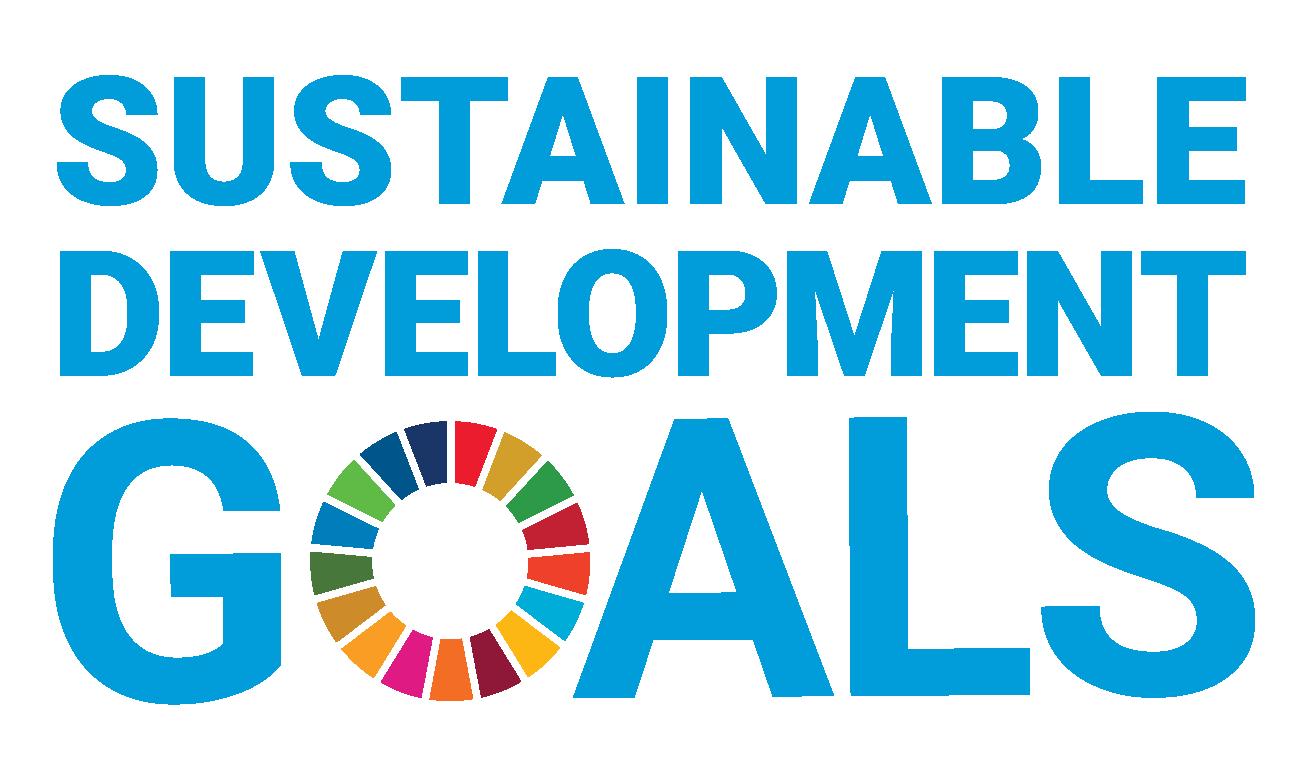
The United Nations Sustainable Development Goals (UNSDGs) are a comprehensive set of global goals to end poverty, protect our planet, and improve living conditions of the global population. At Turner, we use the United Nations Sustainable Development Goals to track our impact.
We also use the SDG framework as a strategic lens to map our actions and initiatives across the goals. This process helps us identify where we are driving the most meaningful impact, and more importantly, where we may need to increase focus, resources, or innovation. By tracking our alignment with specific SDG targets, we can uncover opportunities to strengthen our sustainability strategy, close critical gaps, and engage more effectively with stakeholders who prioritize shared global outcomes.

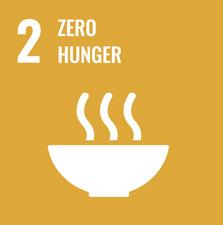







End poverty in all its forms everywhere:
• Construction of social infrastructure and community facilities
• Collaboration with local subcontractors and SMEs
• Corporate citizenship through donations, sponsorships, and community engagement initiatives
End hunger, achieve food security and improved nutrition and promote sustainable agriculture:
• Support for community projects that imrpove food security
• Development of vegetable gardens on jobsites
Ensure healthy lives and promote well-being for all at all ages:
• Robust occupational health and safety programs on job sites
• Initiatives to reduce job site emissions and improve air quality
• Community wellness and health promotion programs
Ensure inclusive and equitable quality education and promote lifelong learning opportunities for all:
• Investment in workforce training and continuing education
• Partnerships with academic institutions and technical schools
Achieve gender equality and empower all women and girls:
• Initiatives such as the Women Superintendent Network and targeted mentorship programs
• Promotion of STEM education and training opportunities for women in construction
Ensure availability and sustainable management of water and sanitation for all:
• Implementation of innovative water management strategies on jobsites
• Use of closed-loop water recycling systems to reduce potable water demand
Ensure access to affordable, reliable, sustainable, and modern energy for all:
• Expansion of Turner’s electric fleet and scaling of renewable diesel usage
• Development and operation of renewable energy projects
• Integration of decarbonization solutions into construction projects
Promote sustained, inclusive, and sustainable economic growth, full and production employment, and decent work for all:
• Investment in workforce development and skills training programs
• Commitment to safe, equitable, and sustainable working conditions
Build resilient infrastructure, promote inclusive and sustainable industrialization, and foster innovation:
• Investment and adoption of smart building technologies, and innovative construction methods
• Establishing specialized tech groups focused on advanced preconstruction and prefabrication








Reduce Inequality within and among countries:
• Programs to support underrepresented communities and reduce workforce disparities
• Targeted recruitment and development initiatives for diverse talent
• Commitment to inclusive practices across all business operations
Make cities and human settlements inclusive, safe, resilient, and sustainable:
• Development of resilient and sustainable buildings
• Implementation of green building practices in community and public projects
Ensure sustainable consumption and production patterns:
• Circularity initiatives, including equipment recycling and material reuse programs
• Adoption of sustainable procurement practices and life cycle management
• Engagement with supply chain partners to reduce waste and environmental impact
Take urgent action to combat climate change and its impacts:
• Decarbonization strategies, including fleet electrification and renewable fuel usage
• Initiatives to track and reduce embodied carbon in construction projects
• Implement measures to lower project-level emissions and improve energy efficiency
Conserve and sustainably use the oceans, seas, and marine resources:
• Construction techniques, prevention measures, and stormwater management systems that minimize negative impacts on water quality
• Sustainable water management practices that safeguard ecosystems
Protect, restore, and promote sustainable use of terrestrial ecosystems:
• Management of impacts on projects in environmentally sensitive areas, including efforts such as biodiversity gardens, monarch butterfly habitats, and local vegetation strategies.
Promote peaceful and inclusive societies for sustainable development:
• Robust corporate governance and ethical business practices
• Transparent compliance and risk management initiatives
• Community engagement projects
Strengthen the means of implementation and revitalize the global partnership for sustainable development:
• Strategic partnerships with industry associations, suppliers, and academic institutions
• Collaboration with local communities and government agencies to advance sustainability


SUSTAIN OUR PLANET





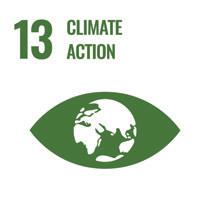


PROTECT & ACTIVELY CARE FOR OUR PEOPLE PURPOSEFULLY TRANSFORM OUR INDUSTRY


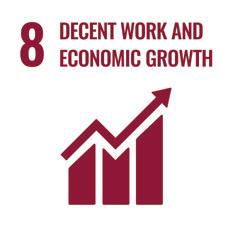



Turner has reported the infromation cited in this GRI content index for the period of January 1, 2024-December 31, 2024 (fiscal year 2024) with reference to the GRI Standards.
GRI 1 USED
GRI 1: FOUNDATION 2021
GRI STANDARD DISCLOSURE LOCATION/RESPONSE
GRI 2: GENERAL DISCLOSURES 2021
2-1 Organizational details
Hochtief Group Report 2024 p. 42, 76
2-2 Entities included in the organization’s sustainability reporting Turner Corporation and our subsidiaries as of December 31, 2024.
2-3 Reporting perod, frequency, and contact point Reporting period: January 1–December 31, 2024. Annual reporting. Contact point for questions: esg@tcco.com.
2-4 Restatements of information N/A
2-5 External assurance
Hochtief Group Report 2024 p. 471
2-6 Activities, value chain, and other business relationships Hochtief Group Report 2024 p. 42, 76
2-7 Employees Social Data p. 68
2-8 Workers who are not employees Social Data p. 68
2-9 Governance structure and composition Intro Letter p. 3
2-13 Delegation of responsibility for managing impacts Credits/Acknowledgements p. 66
2-15 Conflicts of interest
Hochtief Group Report 2024 p. 14
2-16 Communication of critical concerns Hochtief Group Report 2024 p. 258, 282, 294, 301
2-17 Collective knowledge of the highest governance body Hochtief Declaration on Corporate Governance 2024 (>Profile of skills and expertise)
2-18 Evaluation of the performance of the highest governance body Hochtief Supervisory Board
See Point 12 of the Code of Procedure for the Supervisory Board
2-22 Statement on sustainable development strategy Intro Leter p. 3, ESG Strategy p. 4
2-23 Policy commitments Turner Ethics and Compliance
2-24 Embedding policy commitment Turner Ethics and Compliance
2-26 Mechanisms for seeking advice and raising concerns Turner Ethics and Compliance
2-27 Compliance with laws and regulations Turner Ethics and Compliance
2-28 Membership associations We maintain membership in various social impact and sustainability related associations, many of which are referenced throughout this report.
2-29 Approach to stakeholder engagement
Turner ESG Report 2023 p. 60
GRI STANDARD DISCLOSURE LOCATION/RESPONSE
GRI 3: Material Topics 2021
3-1 Process to determine material topics
3-2 List of material topics
GRI 205: Anti-Corruption
Turner ESG Report 2023 p. 60
Turner ESG Report 2023 p. 60
205-1 Operations assessed for risks related to corruption Governance Data p. 63
205-2 Communication and training about anti-corruption policies and procedures
Turner Ethics and Compliance
Turner ISO Certifications
305-1 Direct (Scope 1) GHG emissions Environmental Data p. 67
305-2 Energy indirect (Scope 2) GHG emissions Environmental Data p. 67
305-5 Reduction of GHG emissions
Our Projects and Operations, examples of reductions efforts p. 7-25
306-3 Waste generated Environmental Data p. 67
306-4 Waste diverted from landfill Environmental Data p. 67
Our Projects and Operations, examples of reductions efforts p. 20-24
308: Supplier Environmental Assessment 2016
308-1 New suppliers that were screened using environmental criteria Social Data p. 68
As part of our supplier engagement process, our suppliers were asked to respond to environmental, social, and governance (ESG) questions during the prequalification phase. Additionally, 99% of our significant suppliers have received training on our Code of Conduct.
GRI STANDARD DISCLOSURE LOCATION/RESPONSE GRI 403: Occupational Health and Safety 2018
403-1 Occupational health and safety management system Governance Data p. 69
403-2 Hazard identification, risk assessment and incident investigation Embedding Safety Culture p. 38, Leveraging AI for a Safer Future p. 39, ISO Certifications p. 63
403-3 Occupational health services
403-4 Worker participation, consultation, and communication on occupational health and safety
Our Business Partners, examples of our safety and wellness programs p. 38-41
Our Business Partners, examples of our safety and wellness programs p. 38-41
403-5 Worker training on occupational health and safety Our Business Partners, examples of our safety and wellness programs p. 38-41
403-6 Promotion of worker health
403-7 Prevention and mitigation of occupational health and safety impacts directly linked by business
Our Business Partners, examples of our safety and wellness programs p. 38-41
Our Business Partners, examples of our safety and wellness programs p. 38-41
403-8 Workers covered by an occupational health and safety management system ISO Certifications p. 63, Governance Data p. 69
403-9 Work-related injuries Social Data p. 68
GRI 404: Training and Education 2016
404-1 Average hours of training per year per employee Training Data p. 68
404-2 Programs for upgrading employee skills and transition assistance programs Building a Stronger Future: Turner’s Commitment to Workforce Development & Opportunity p. 28, Building Belonging: Finding Confidence and Community in Employee Resource Groups p. 29, Developing the Next Generation of Leaders: Inclusive Leadership Academy p. 30









